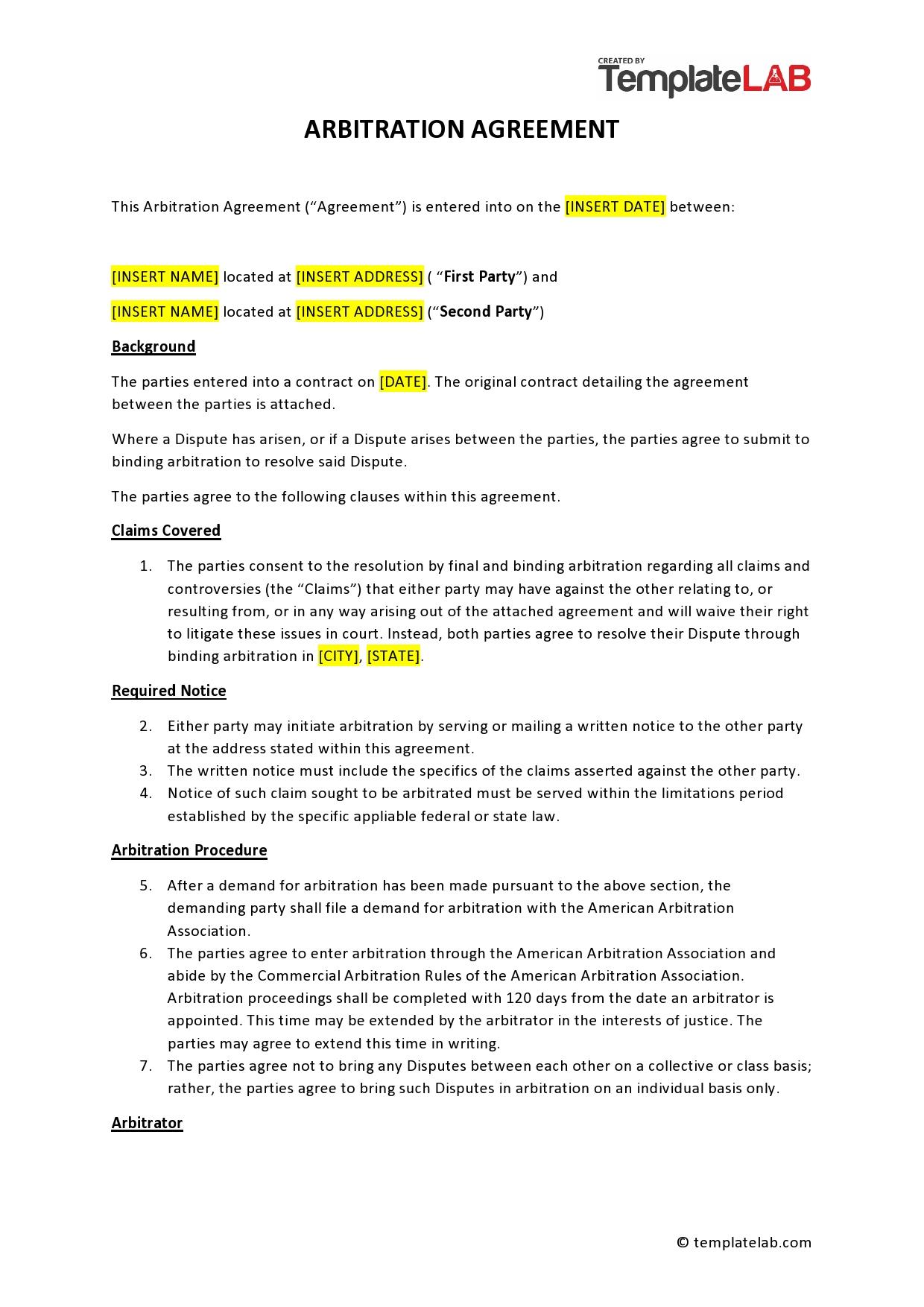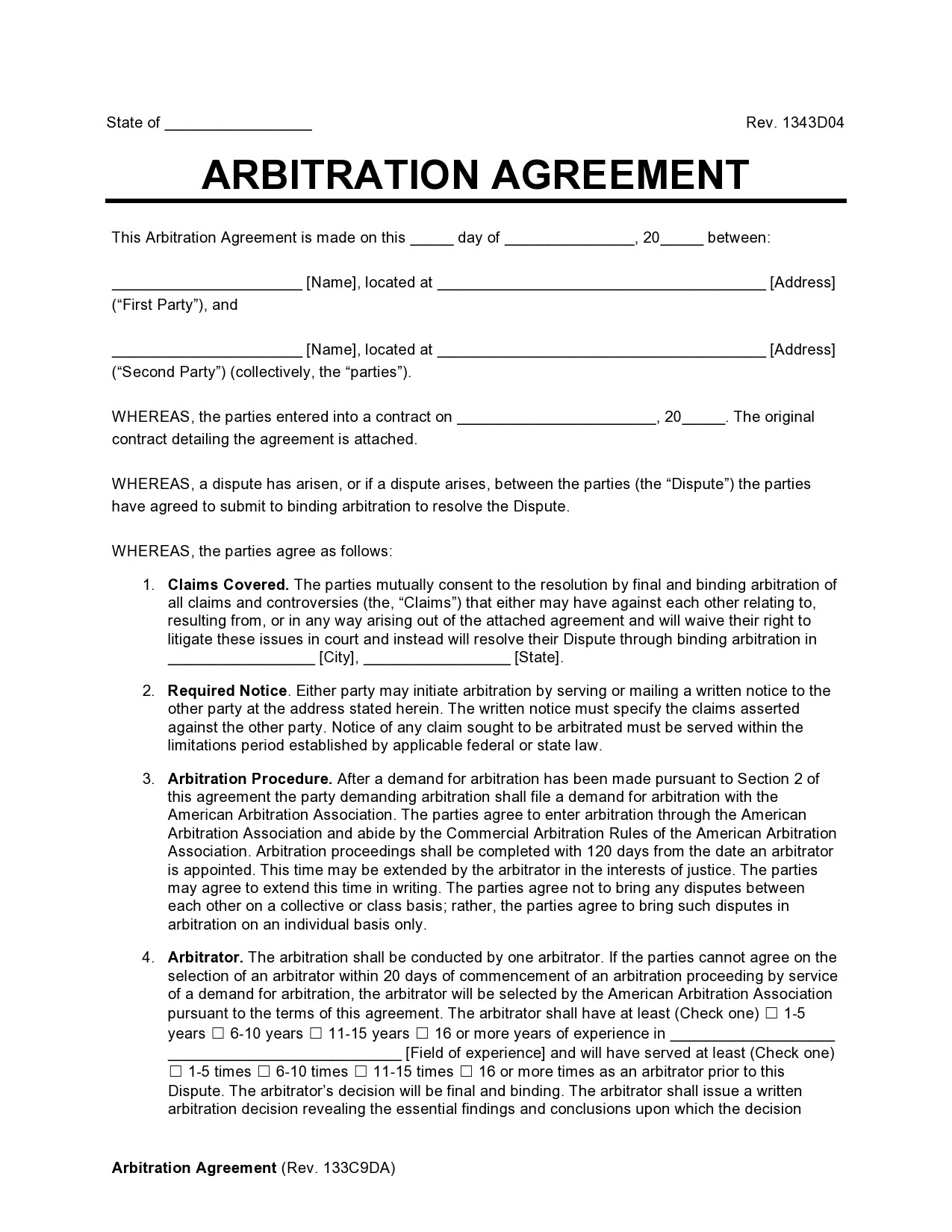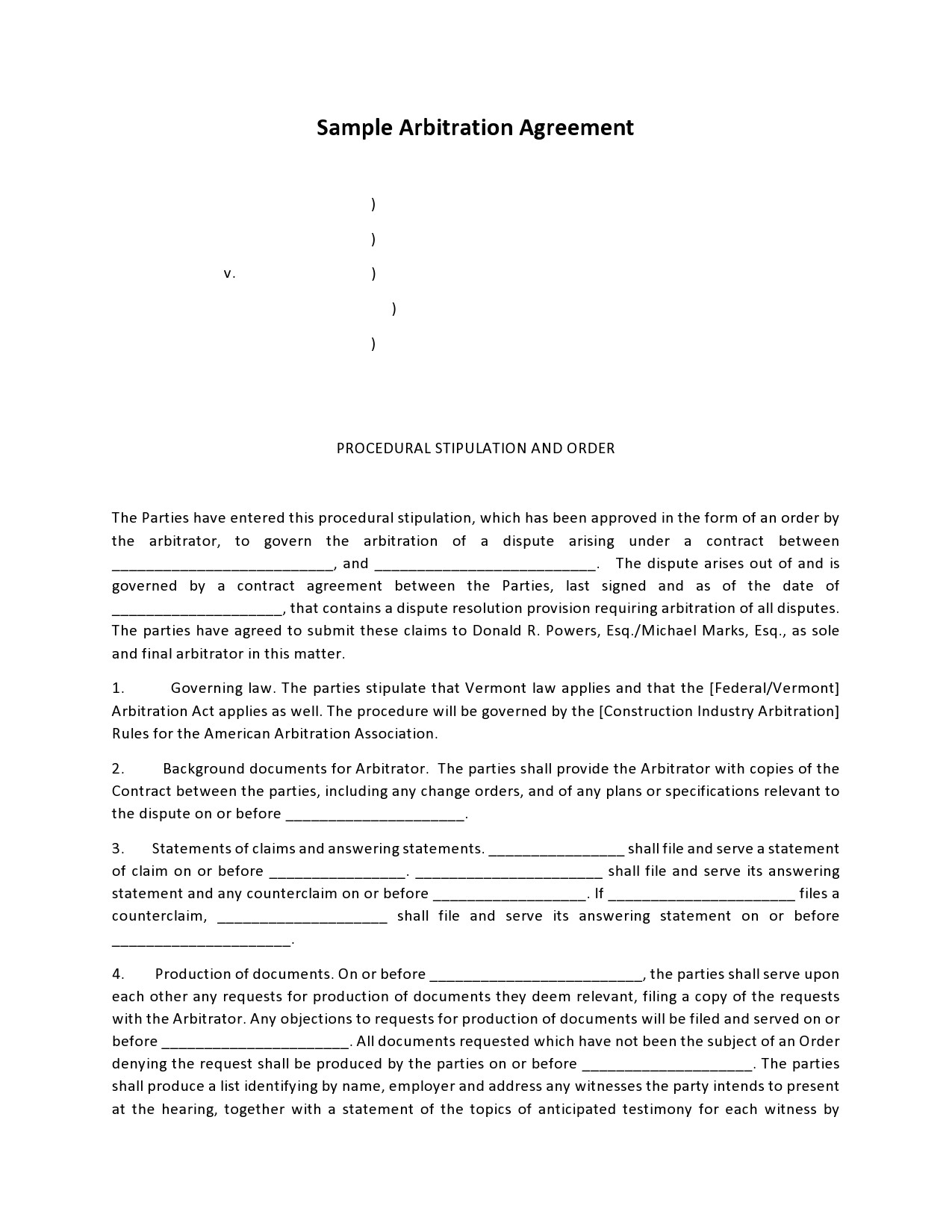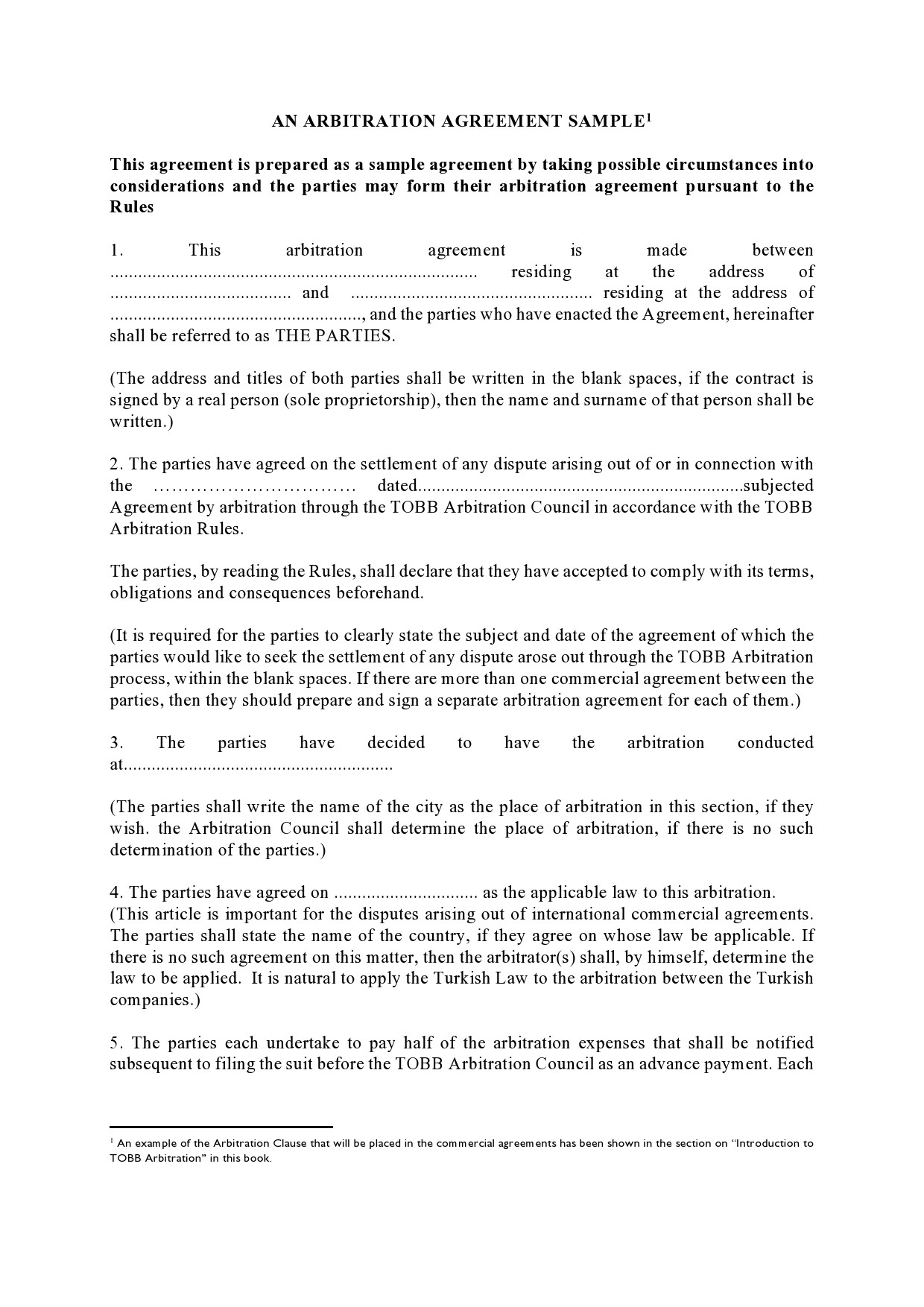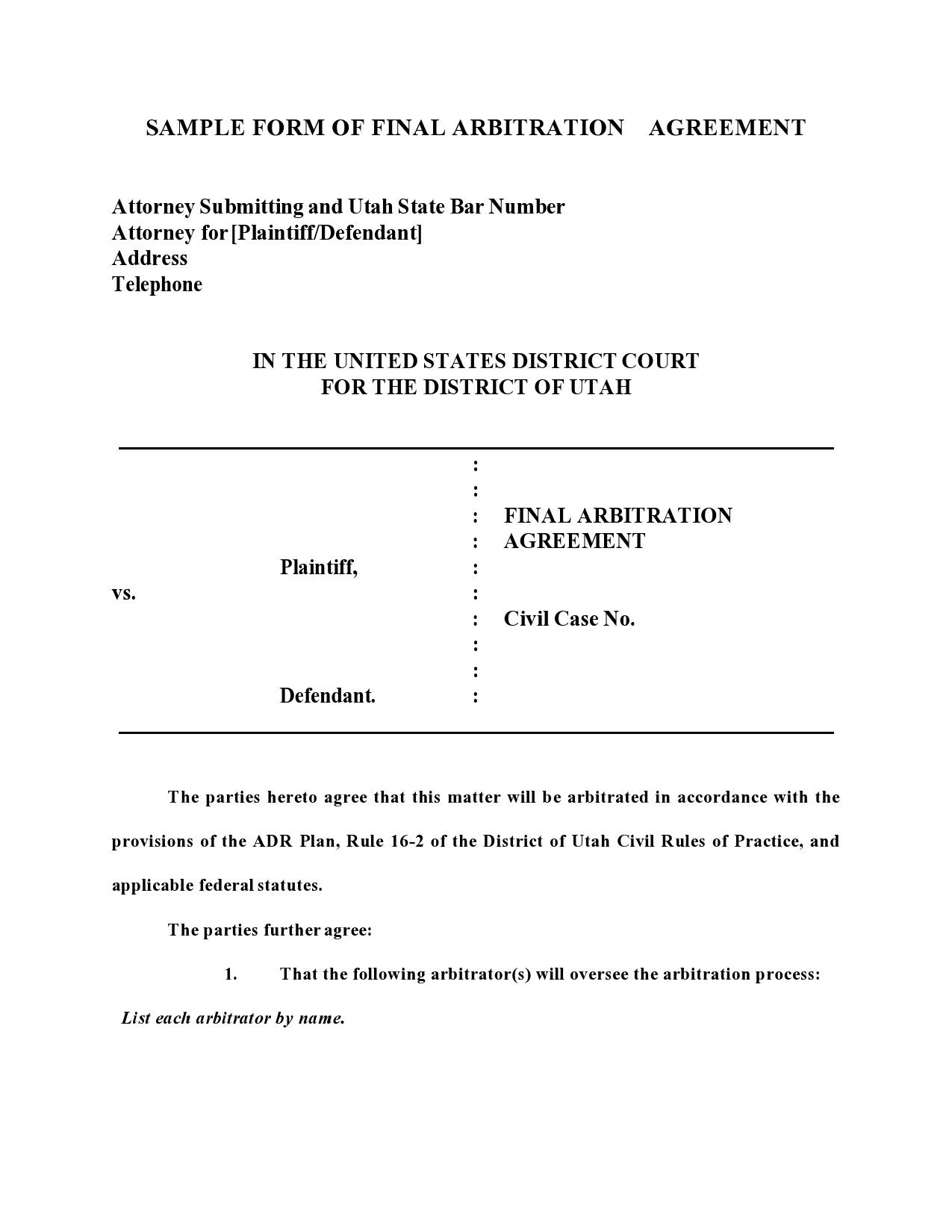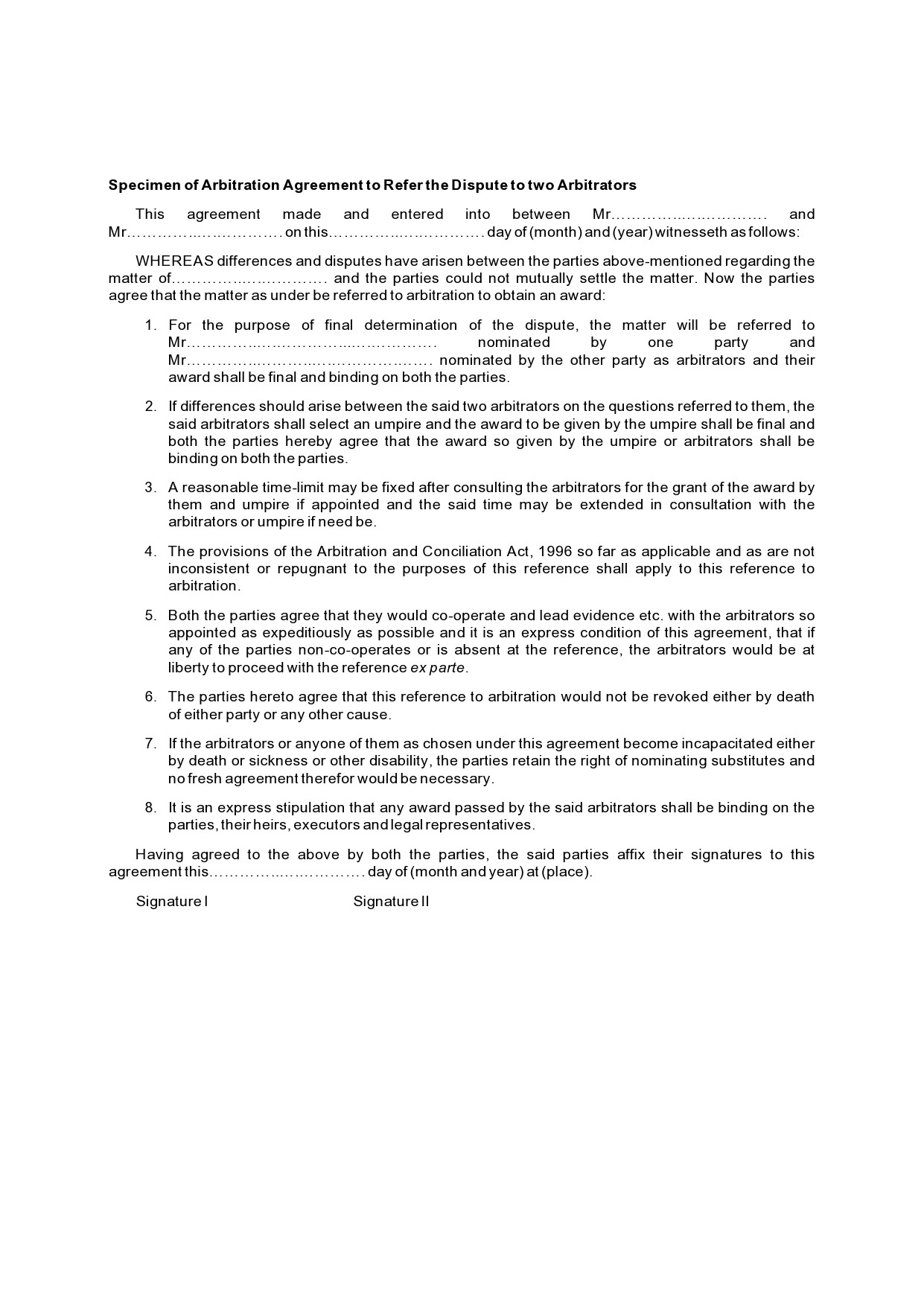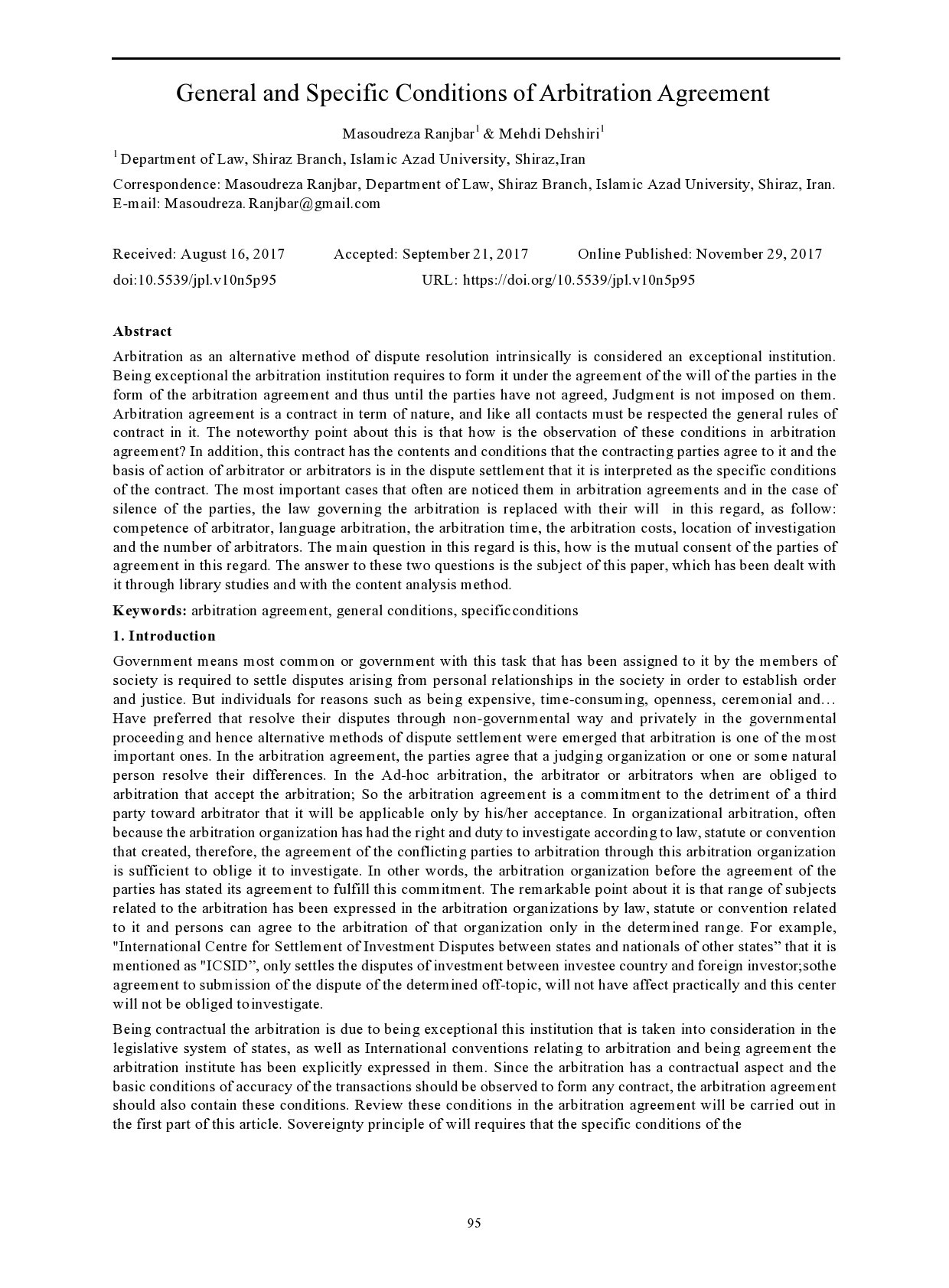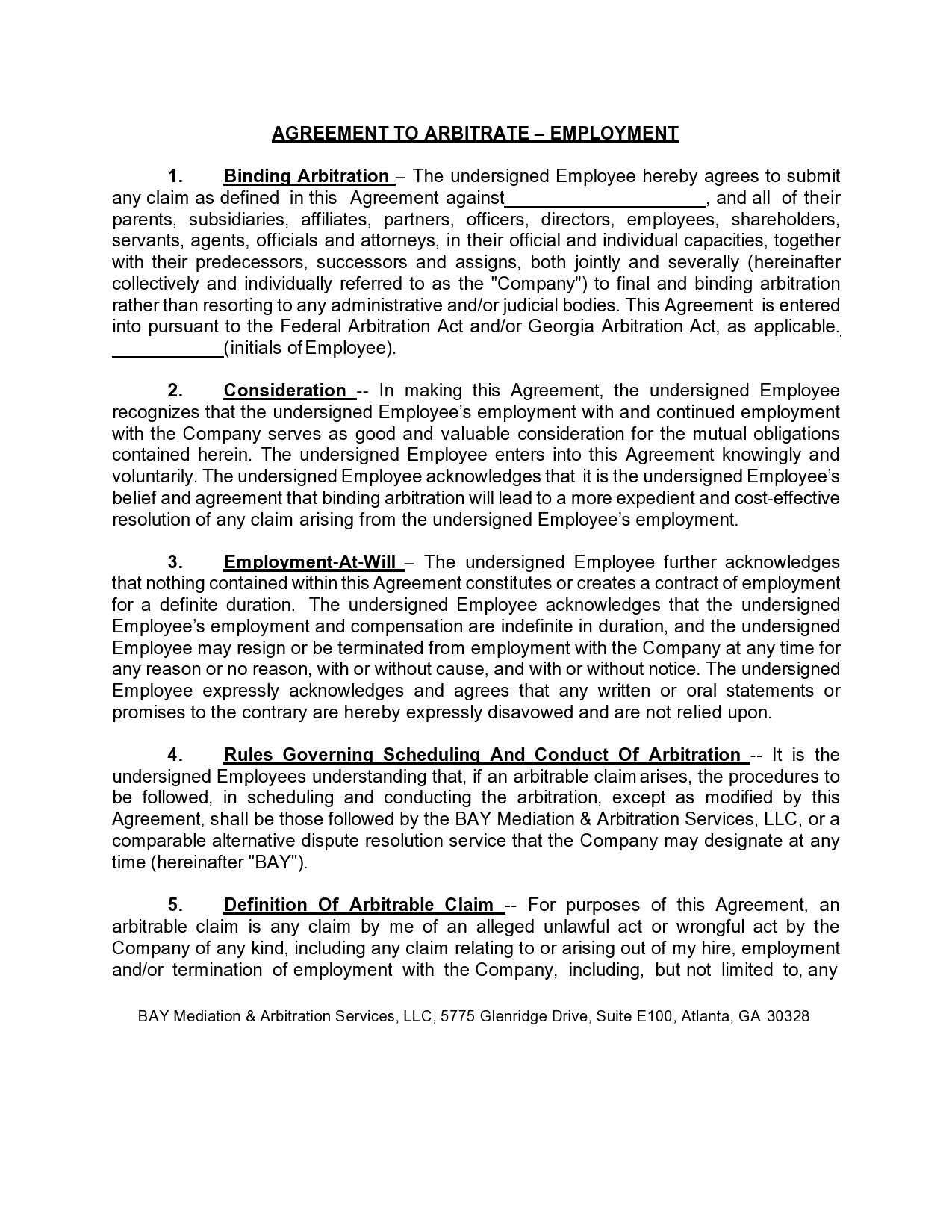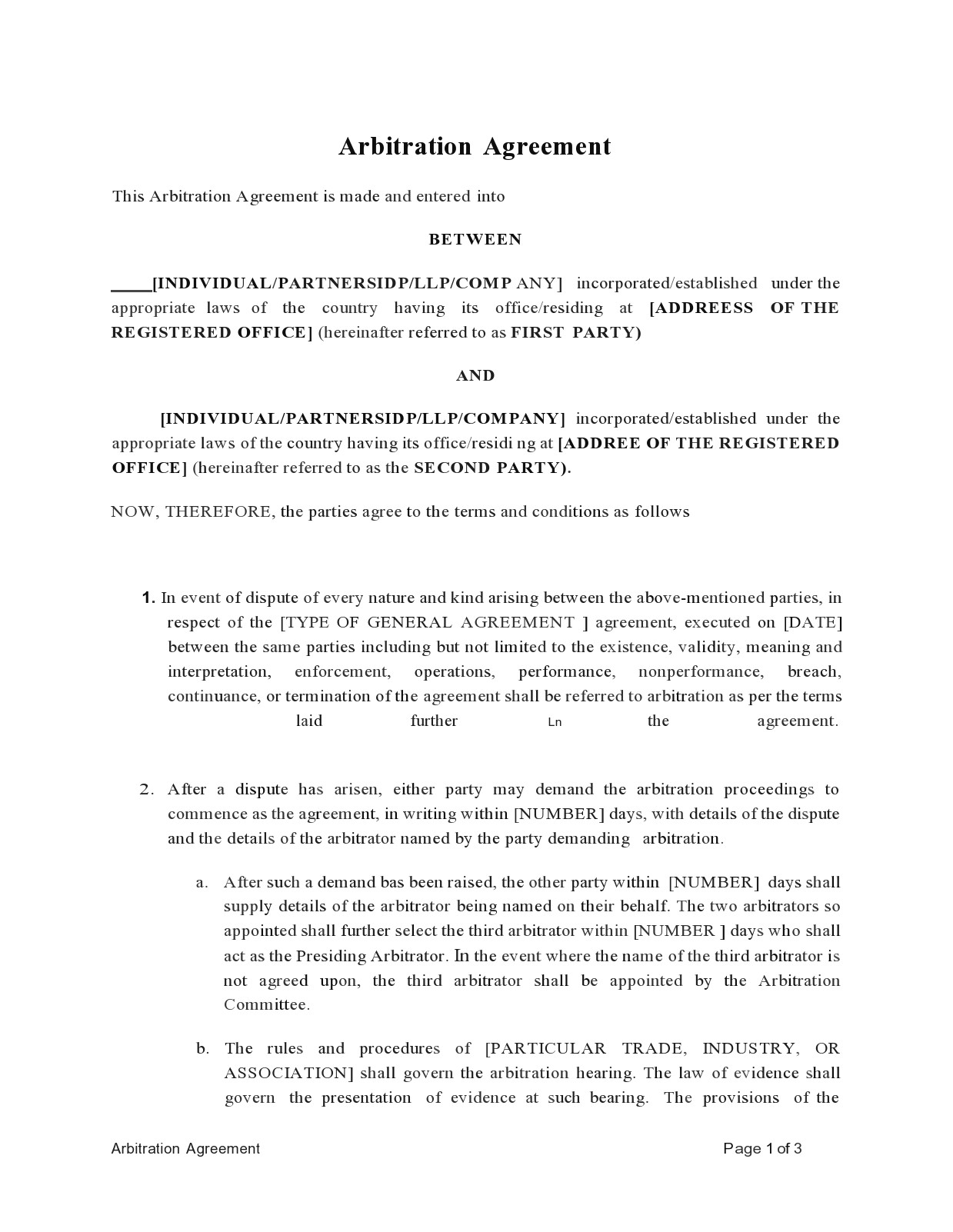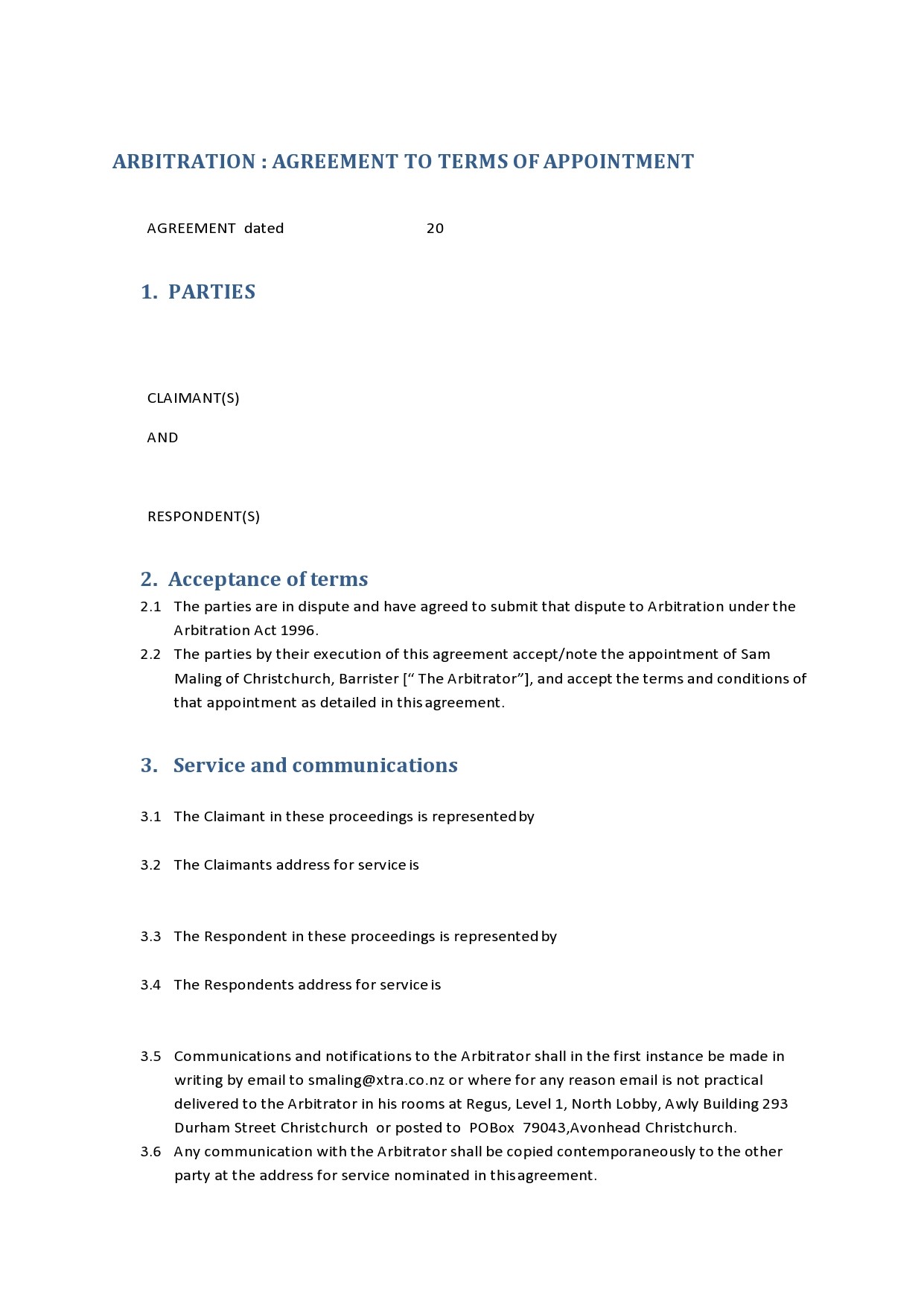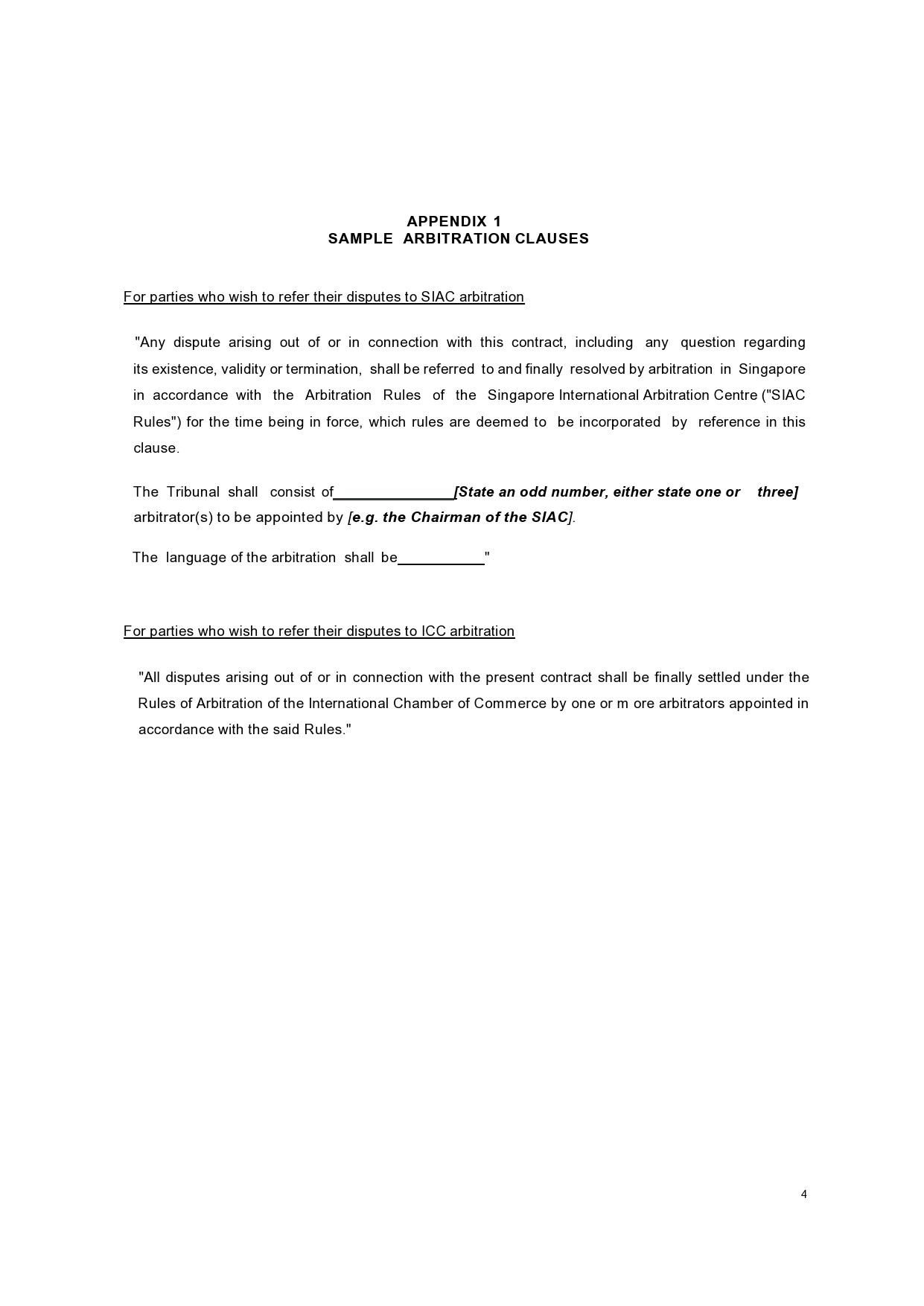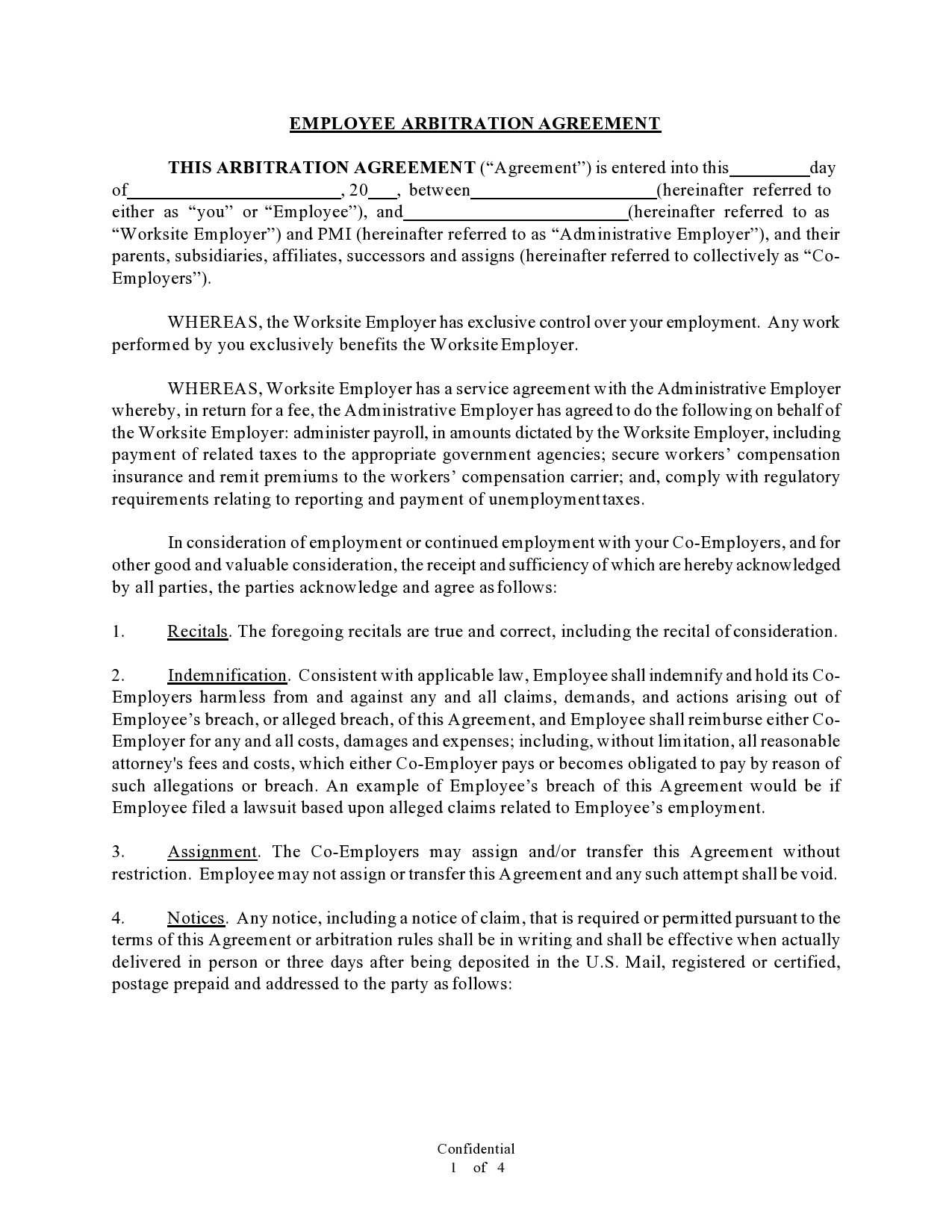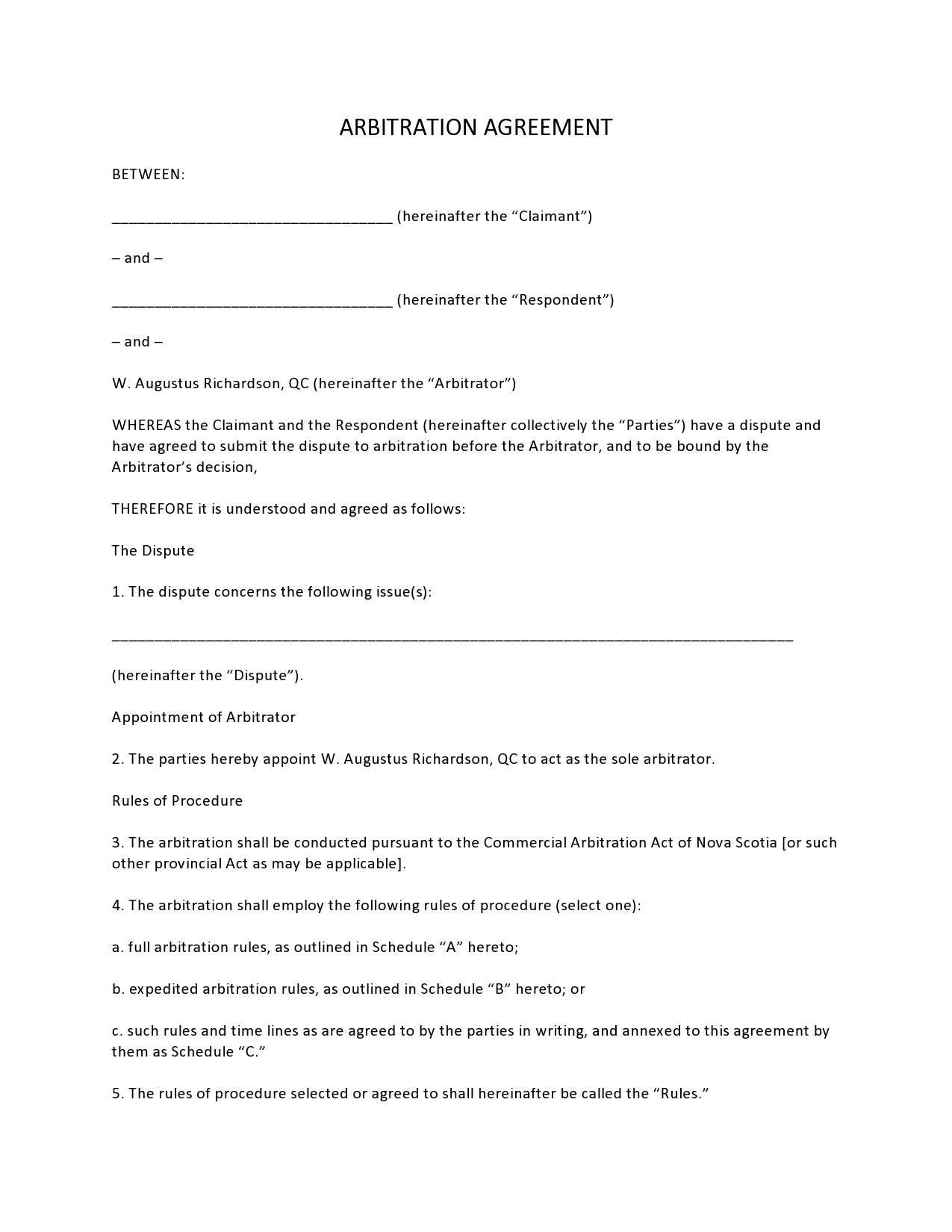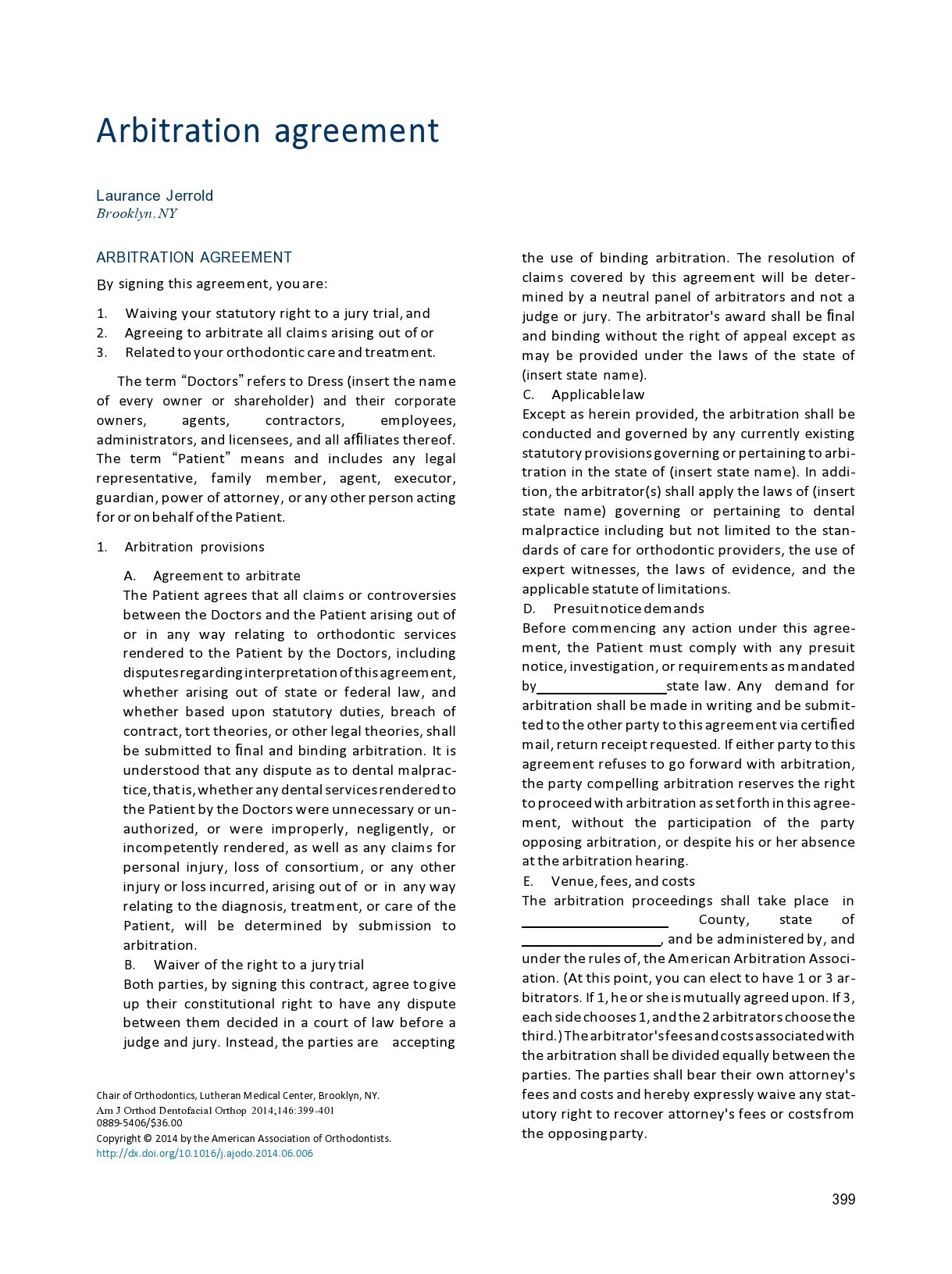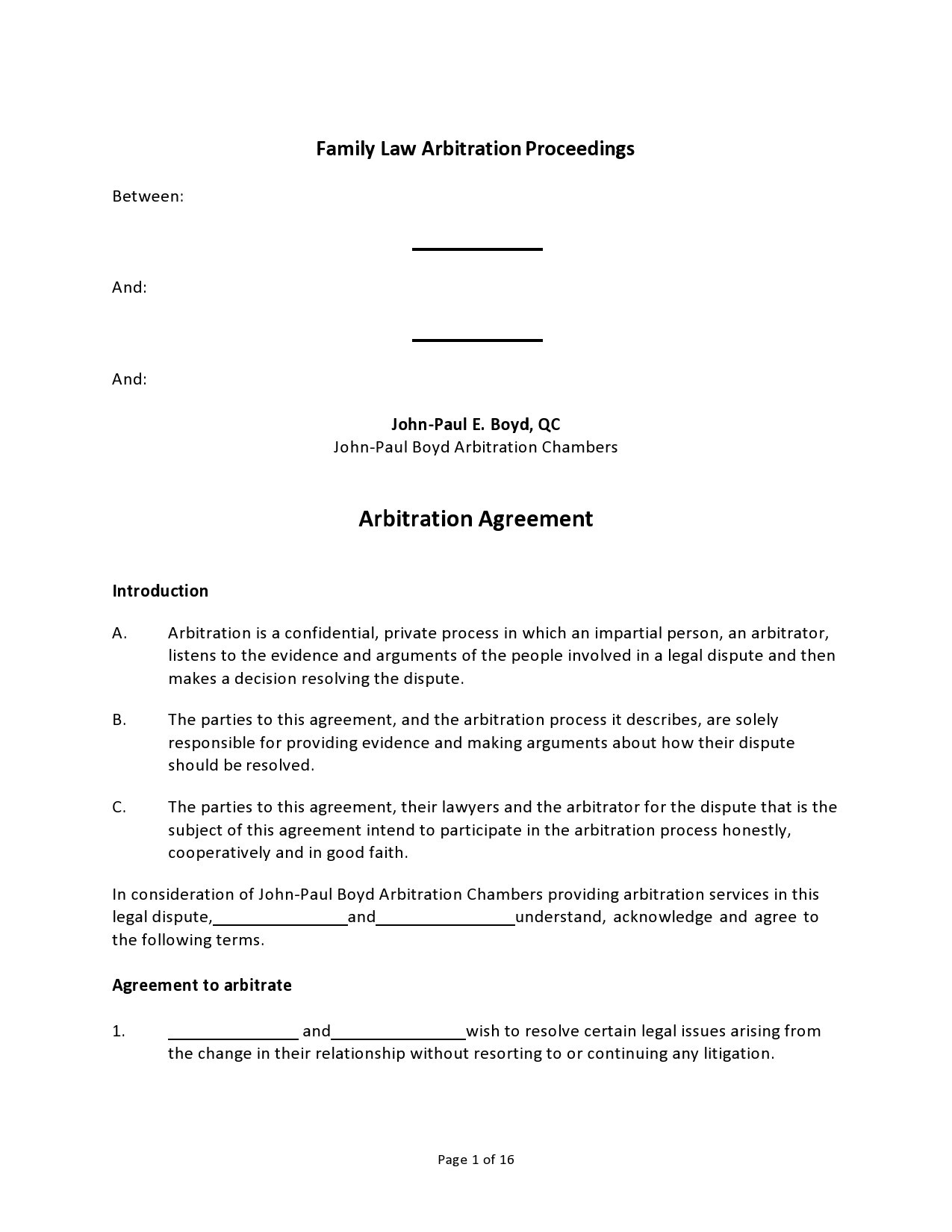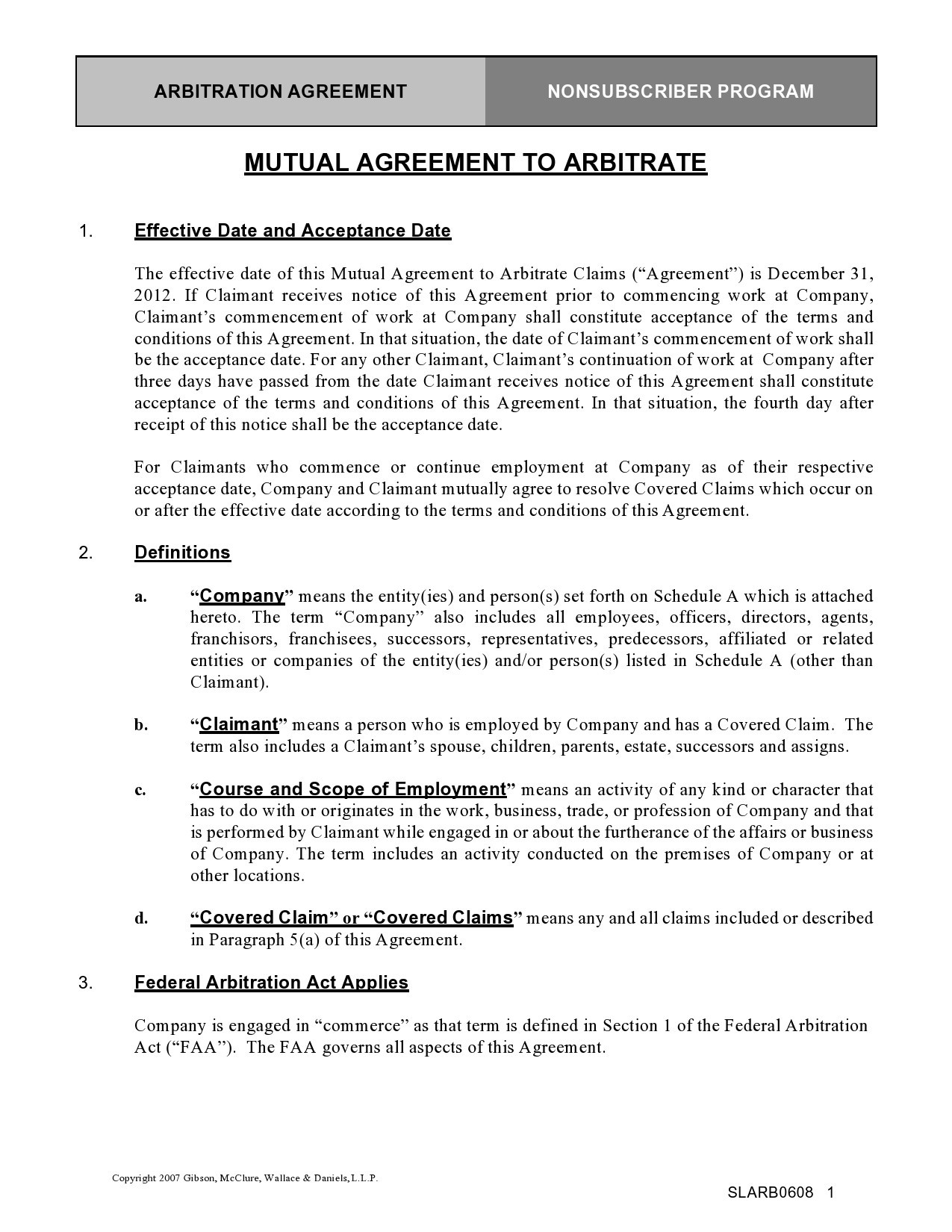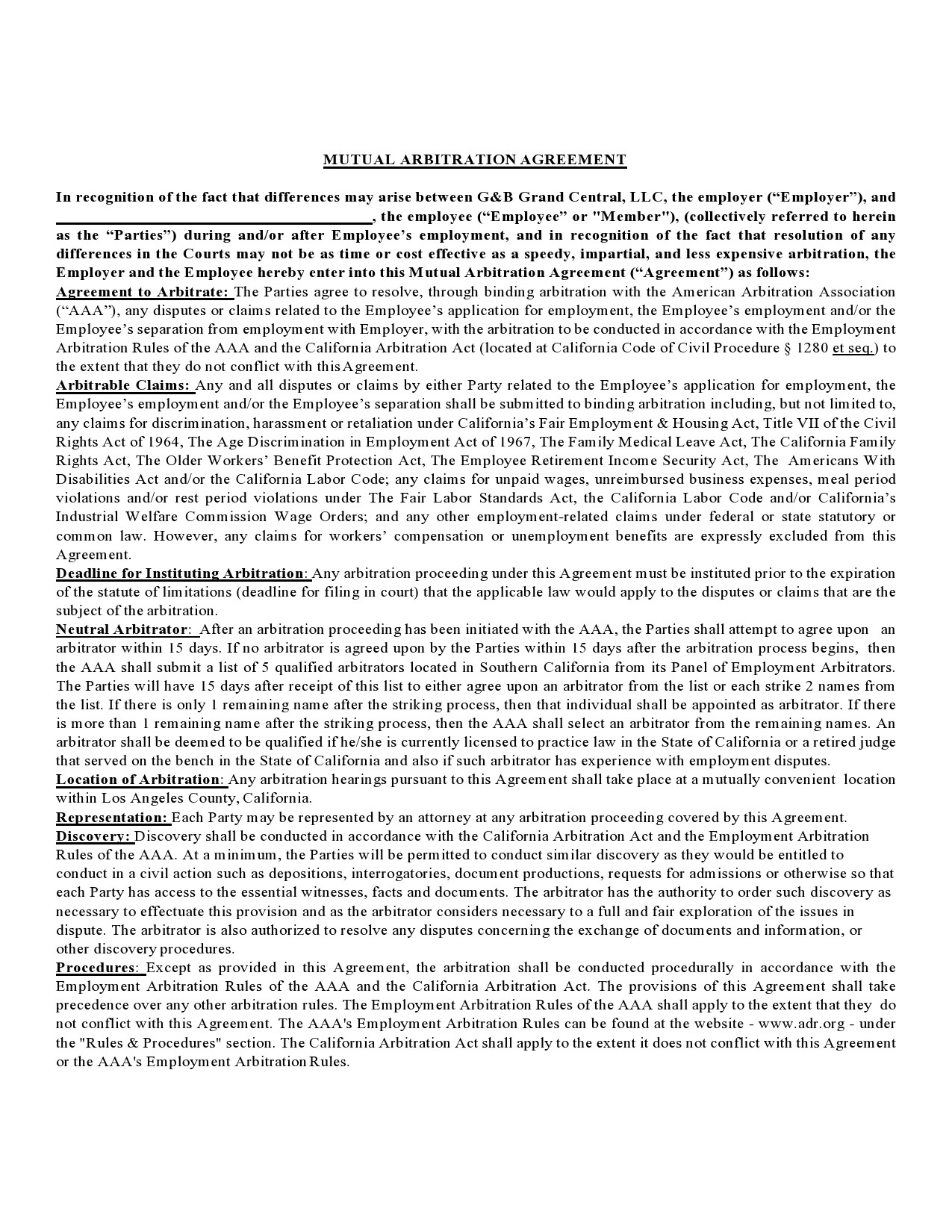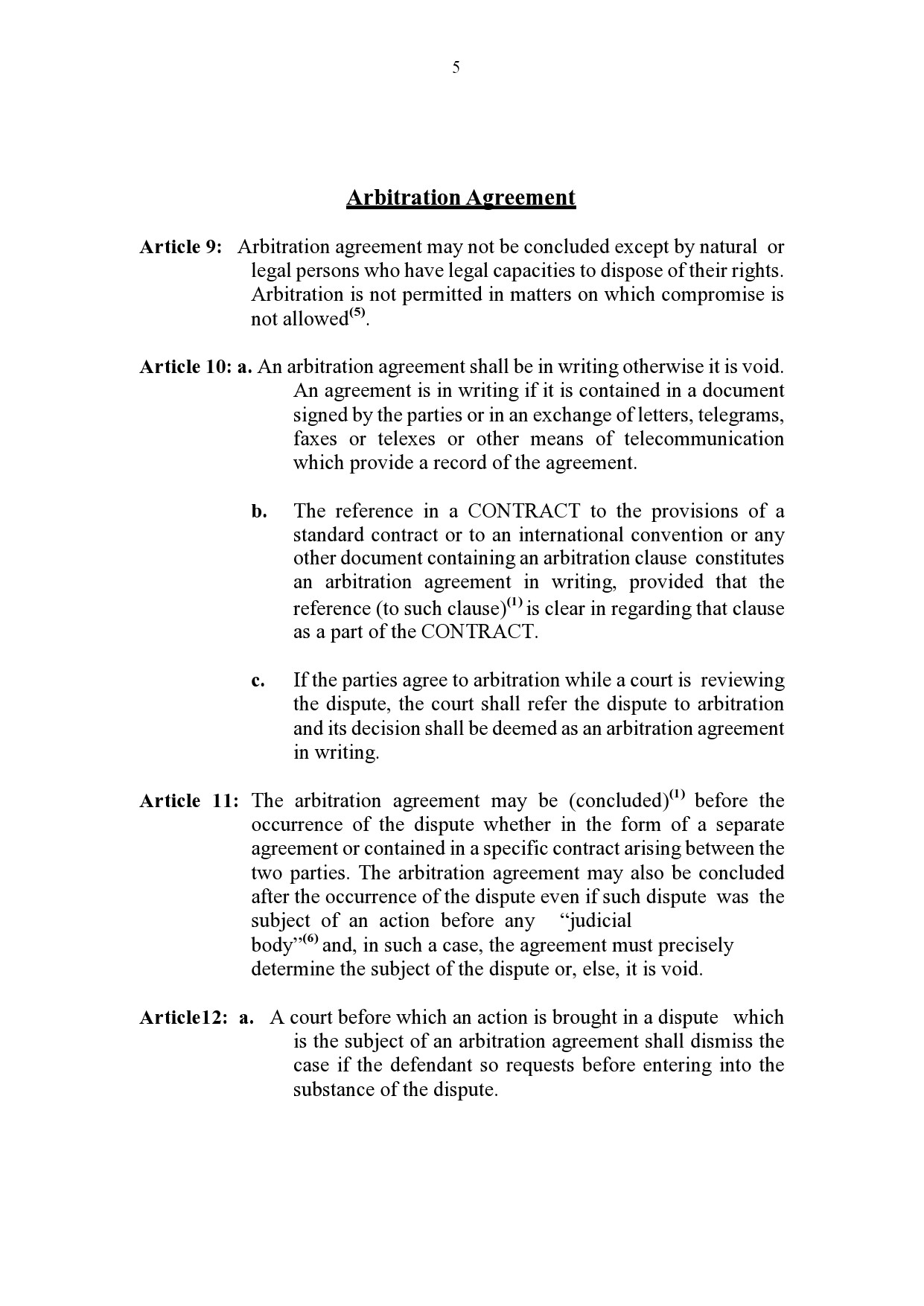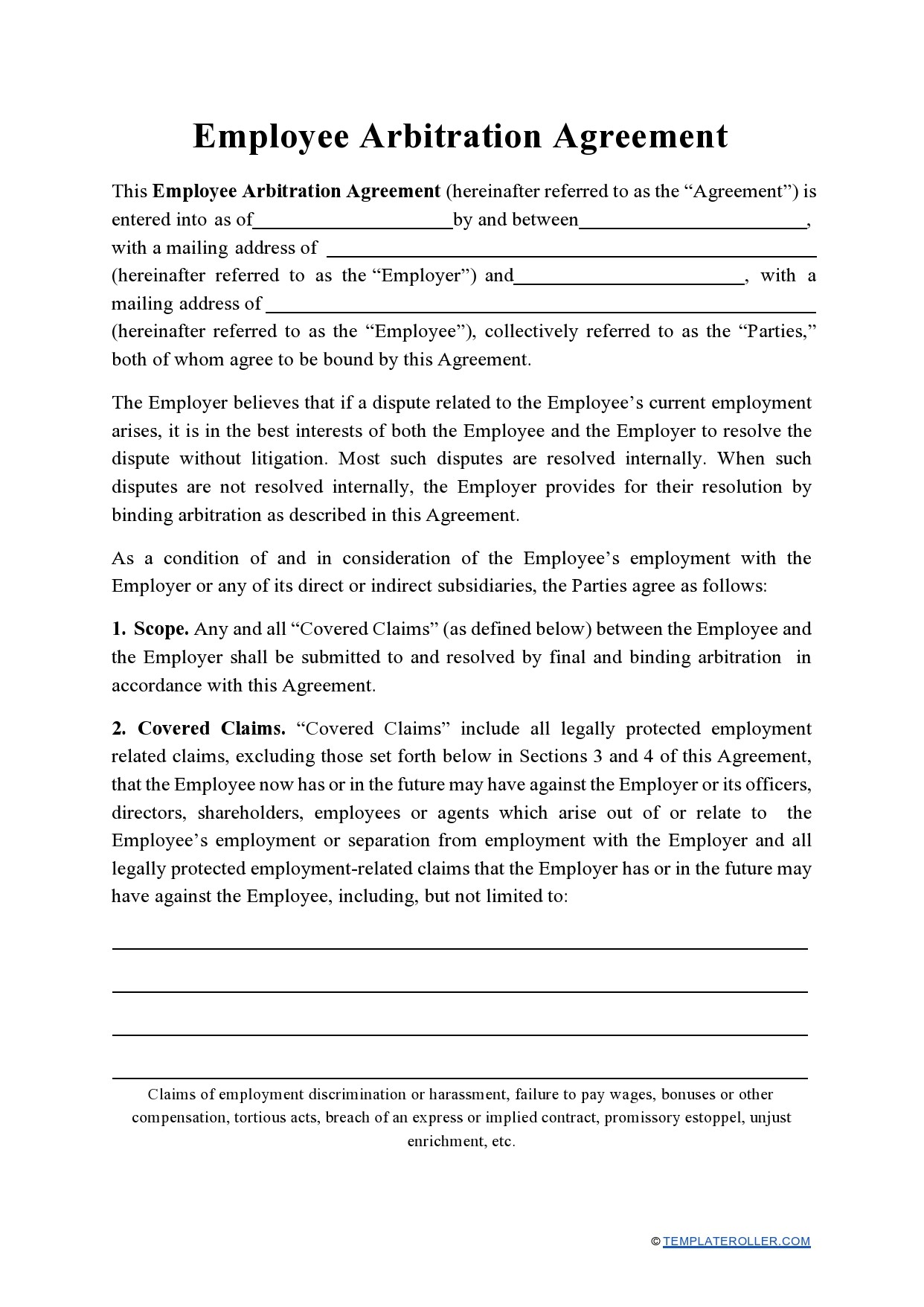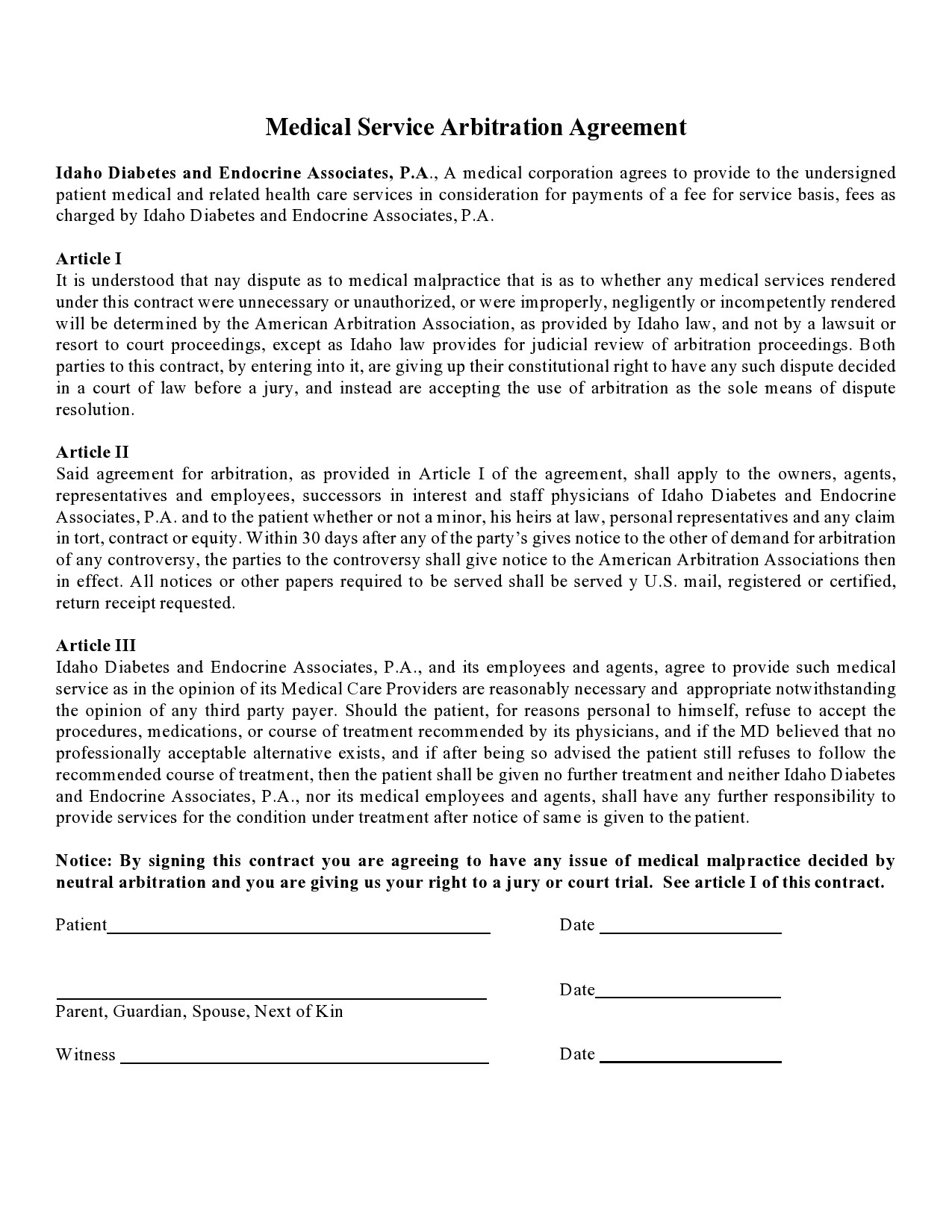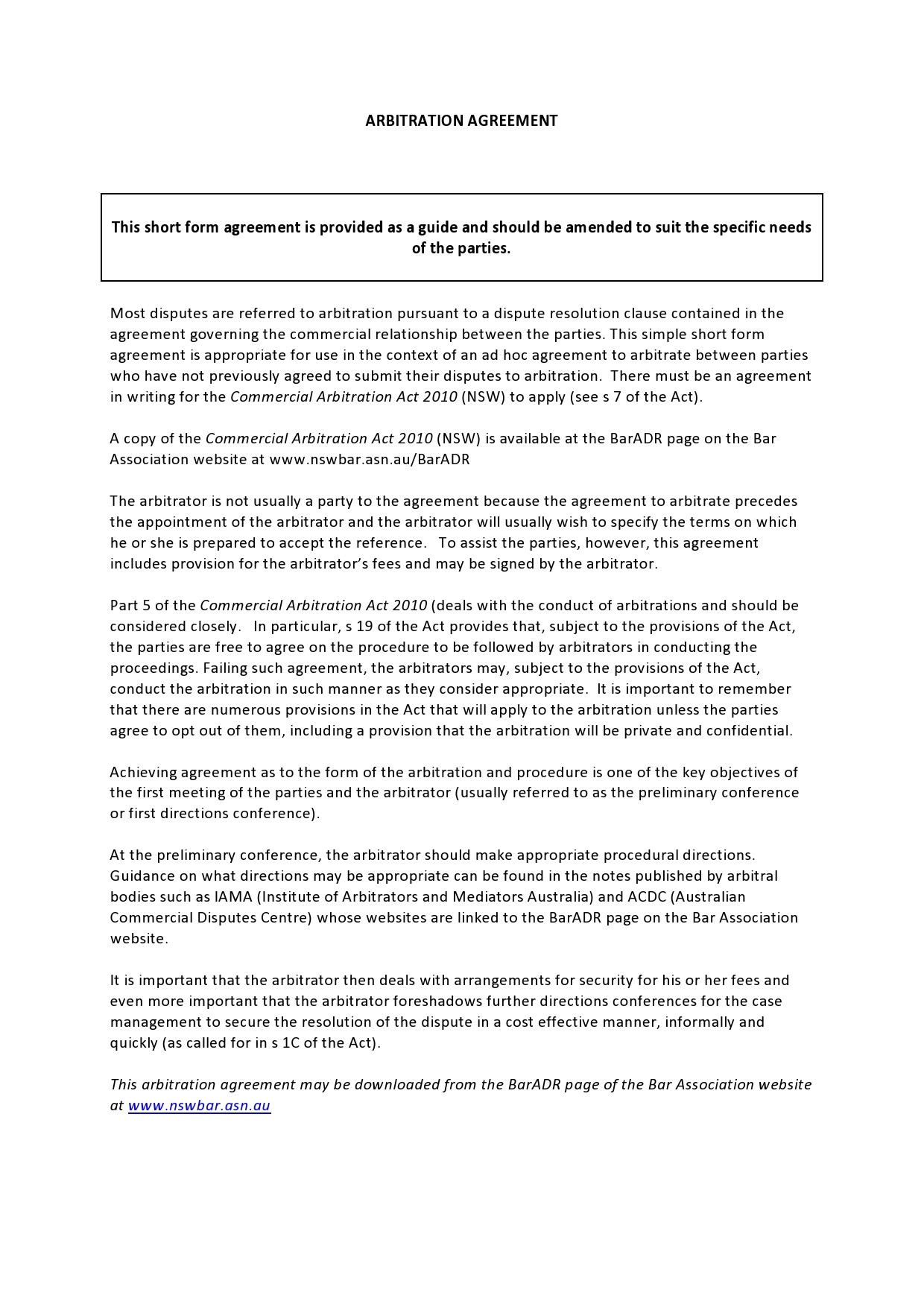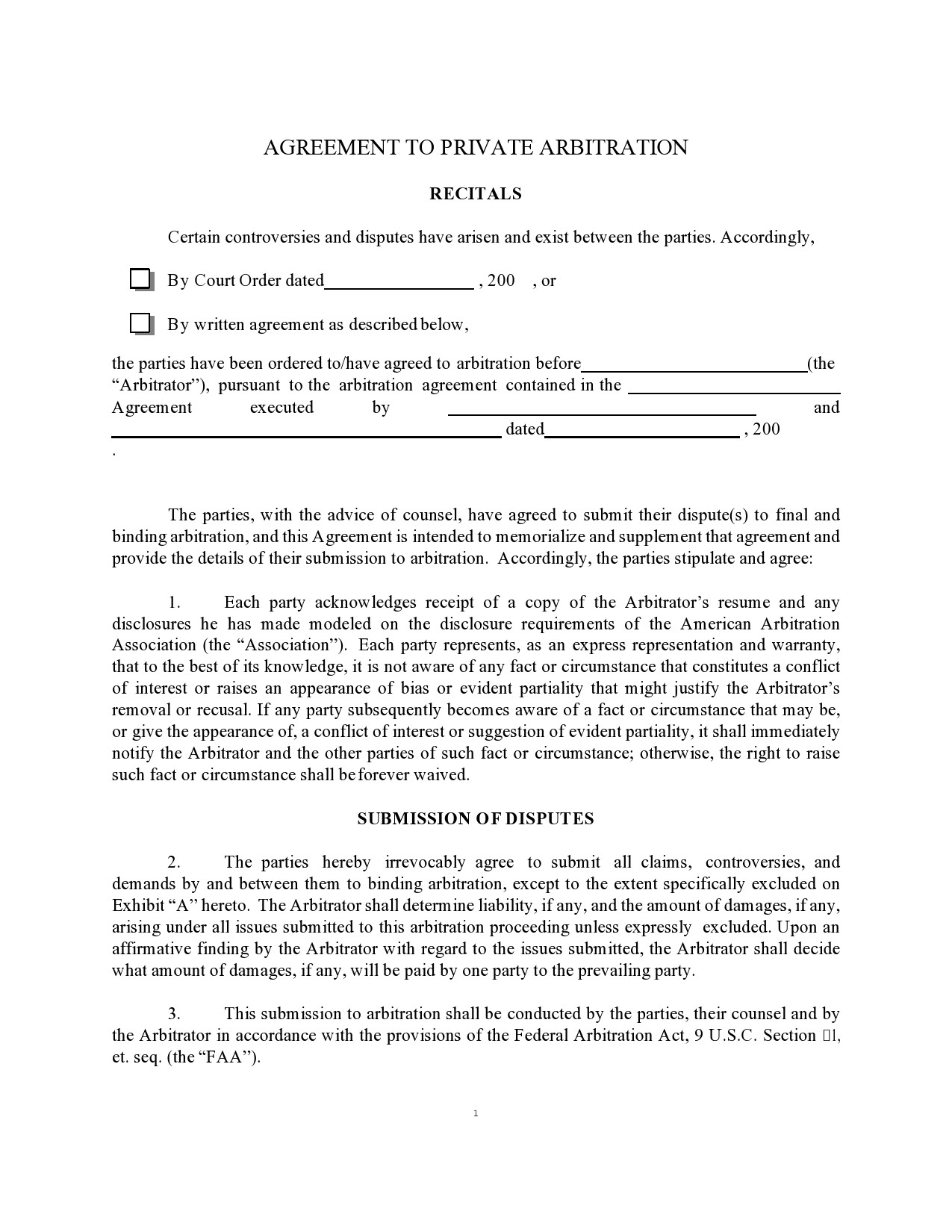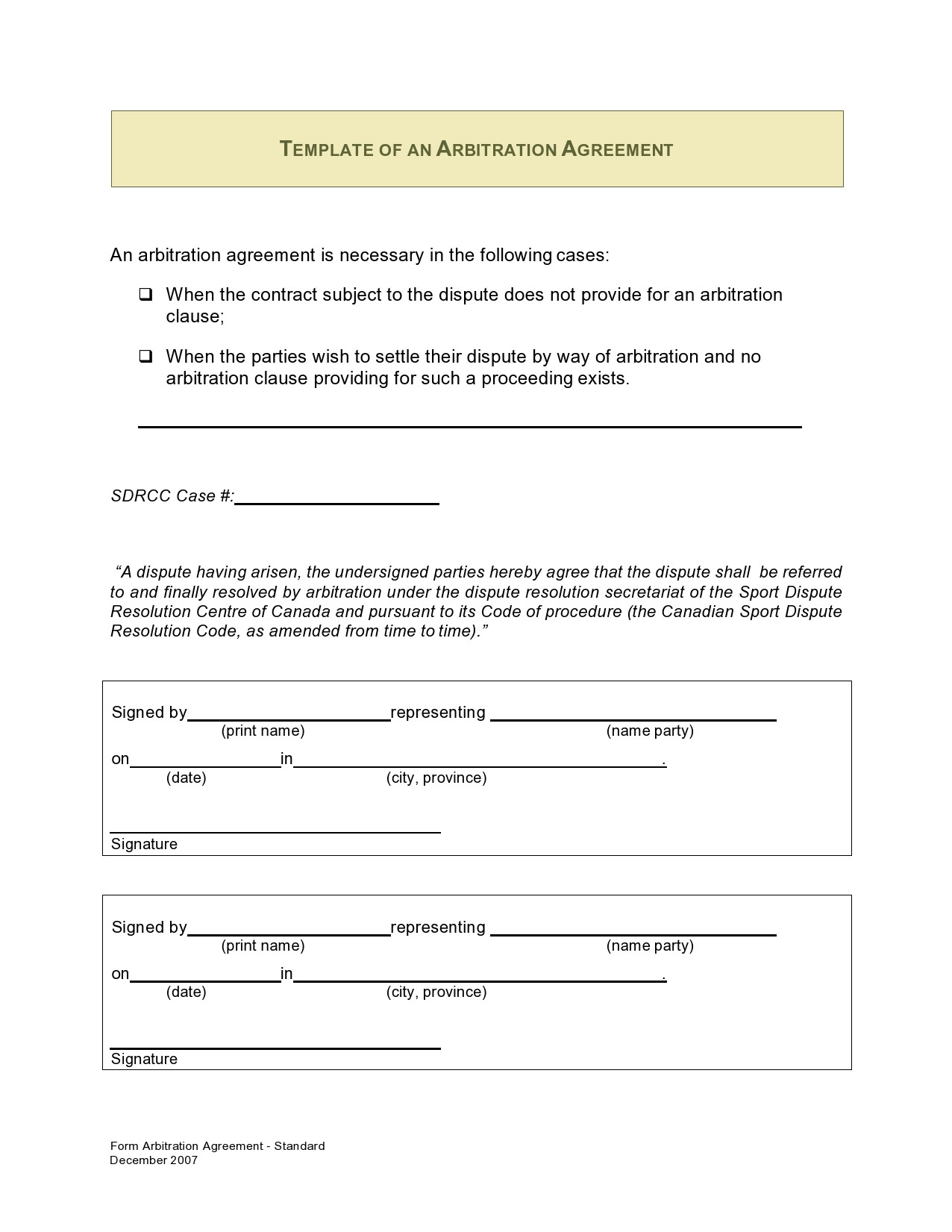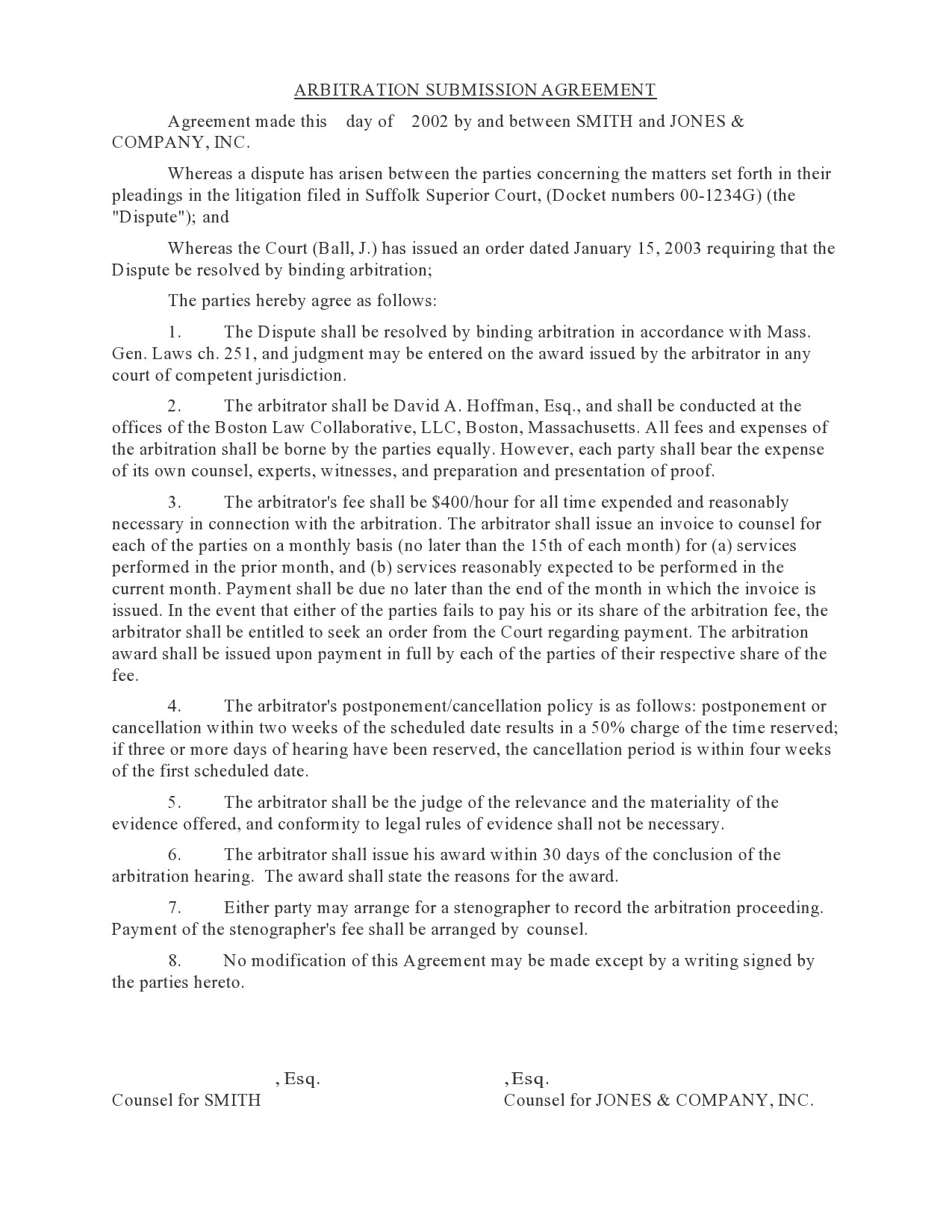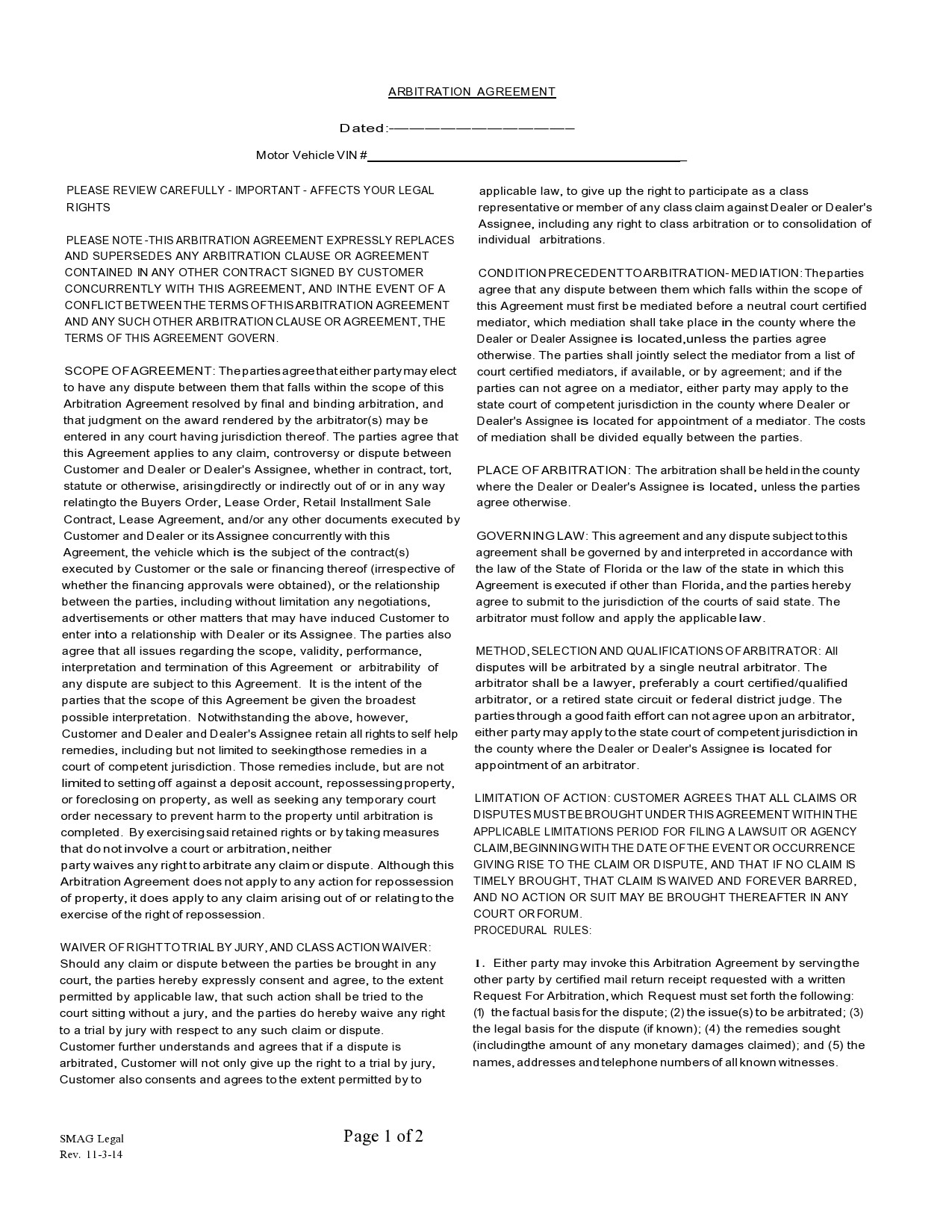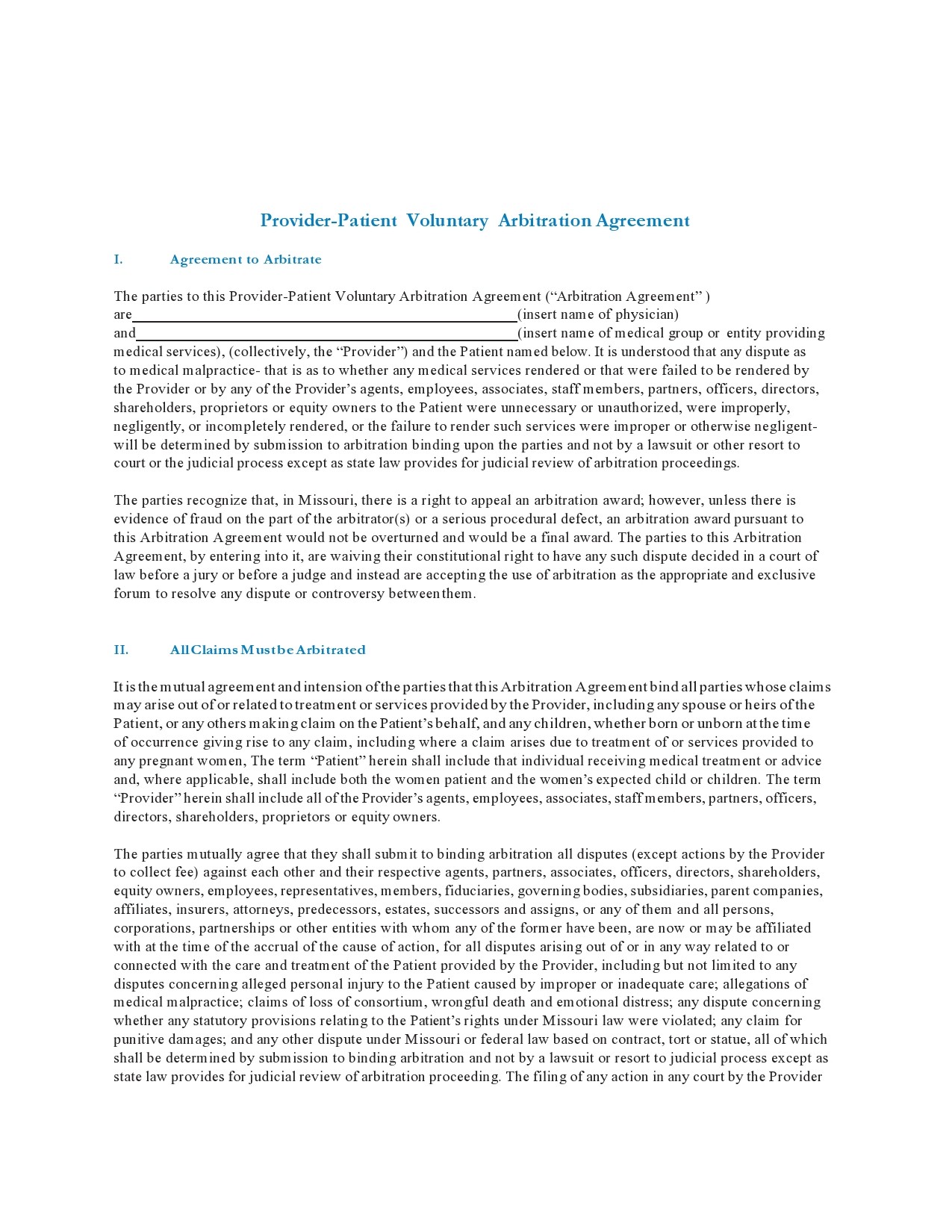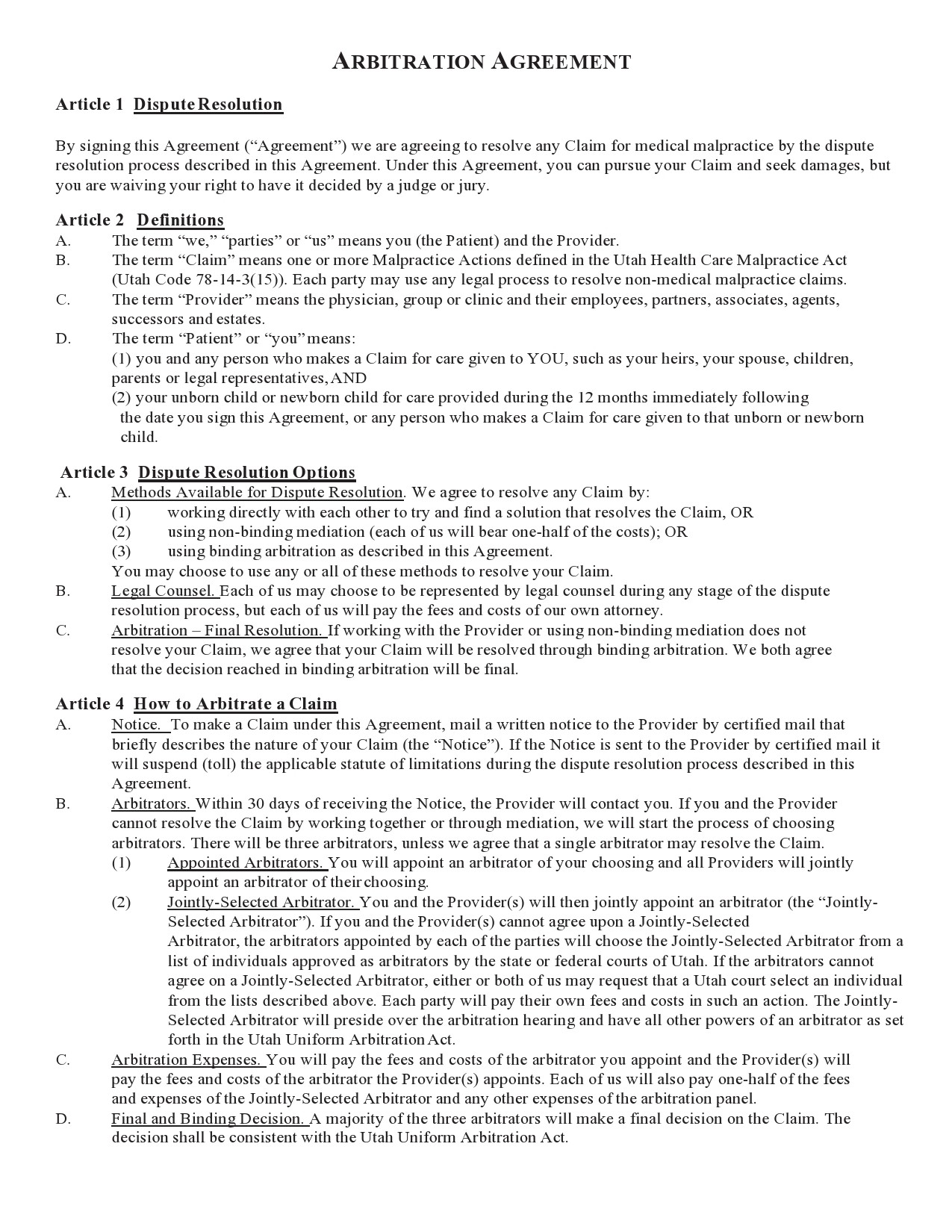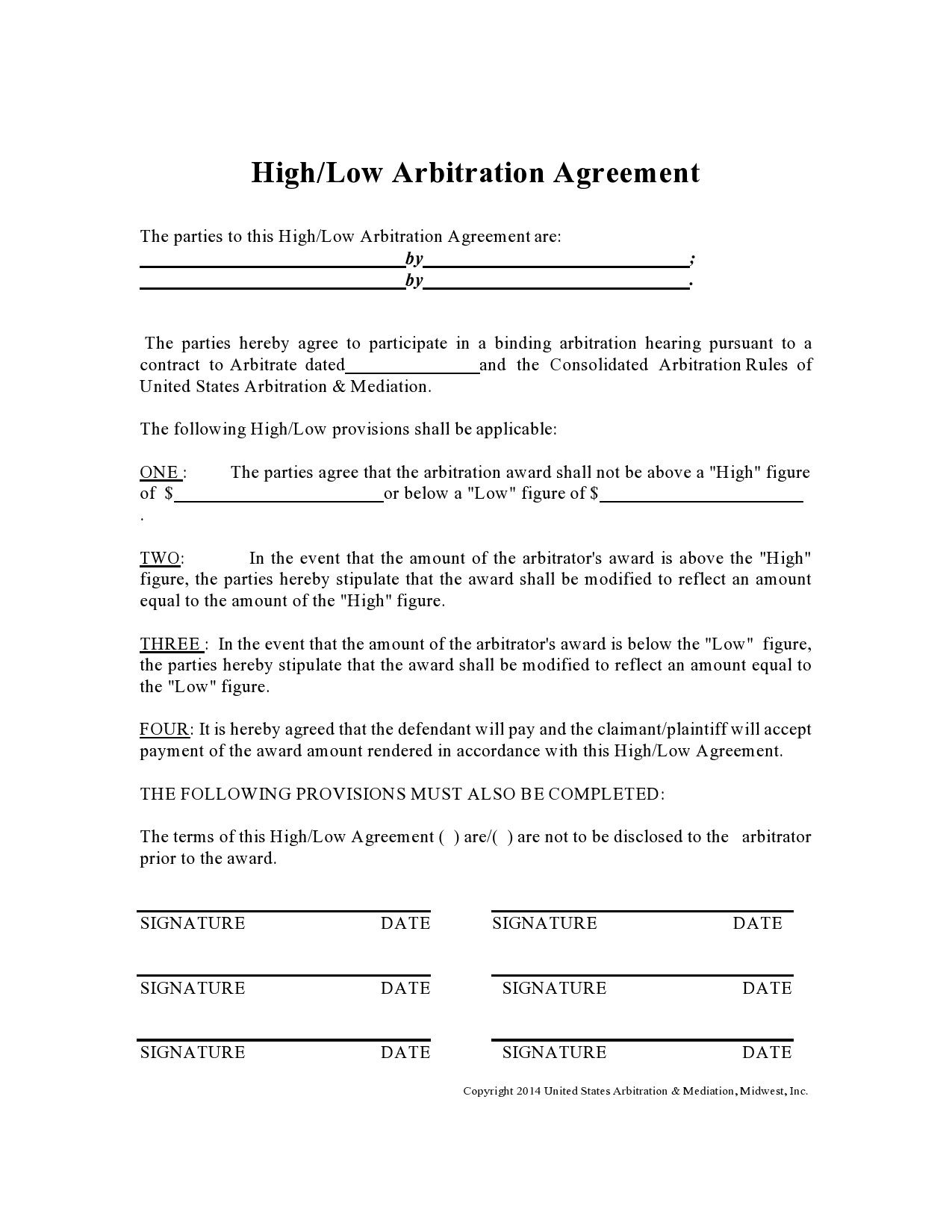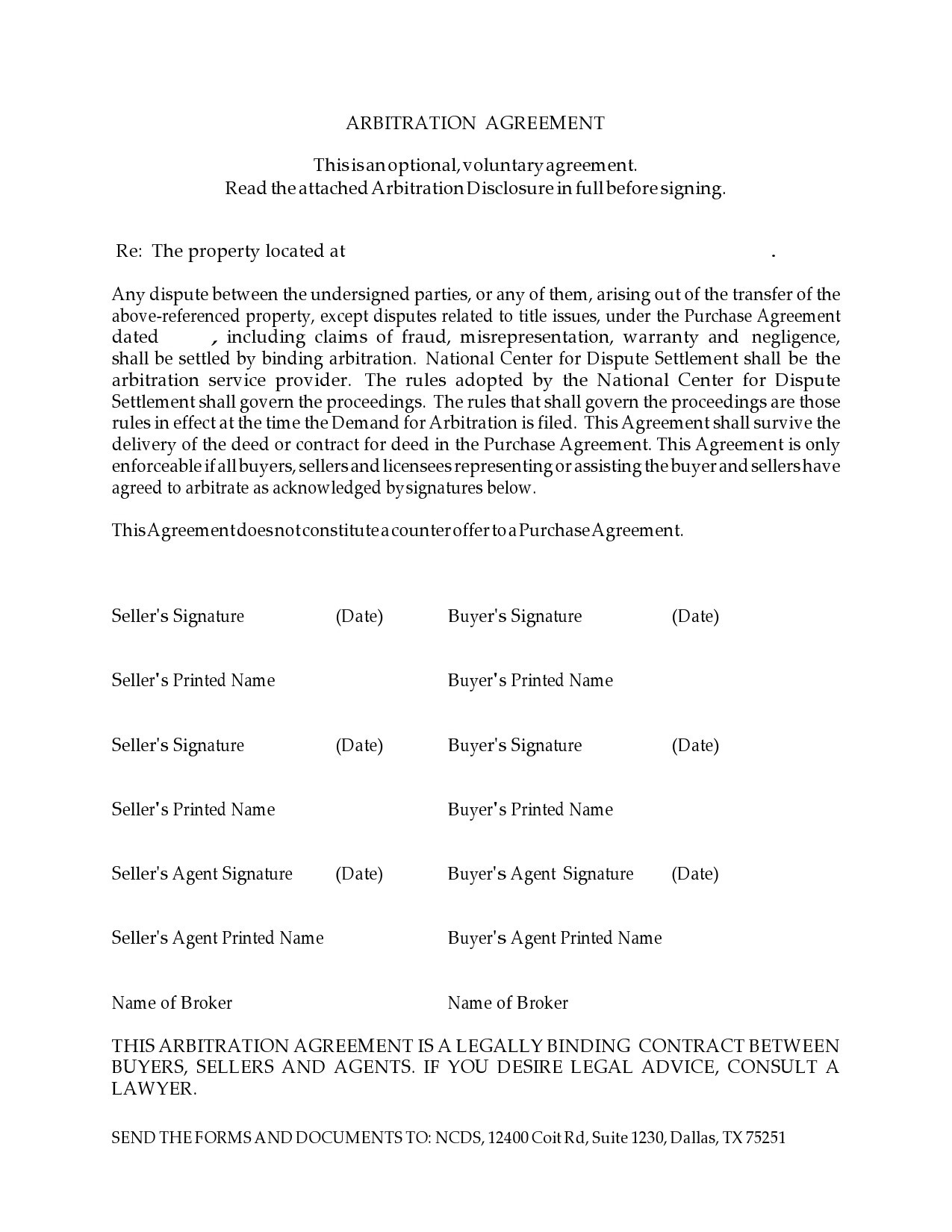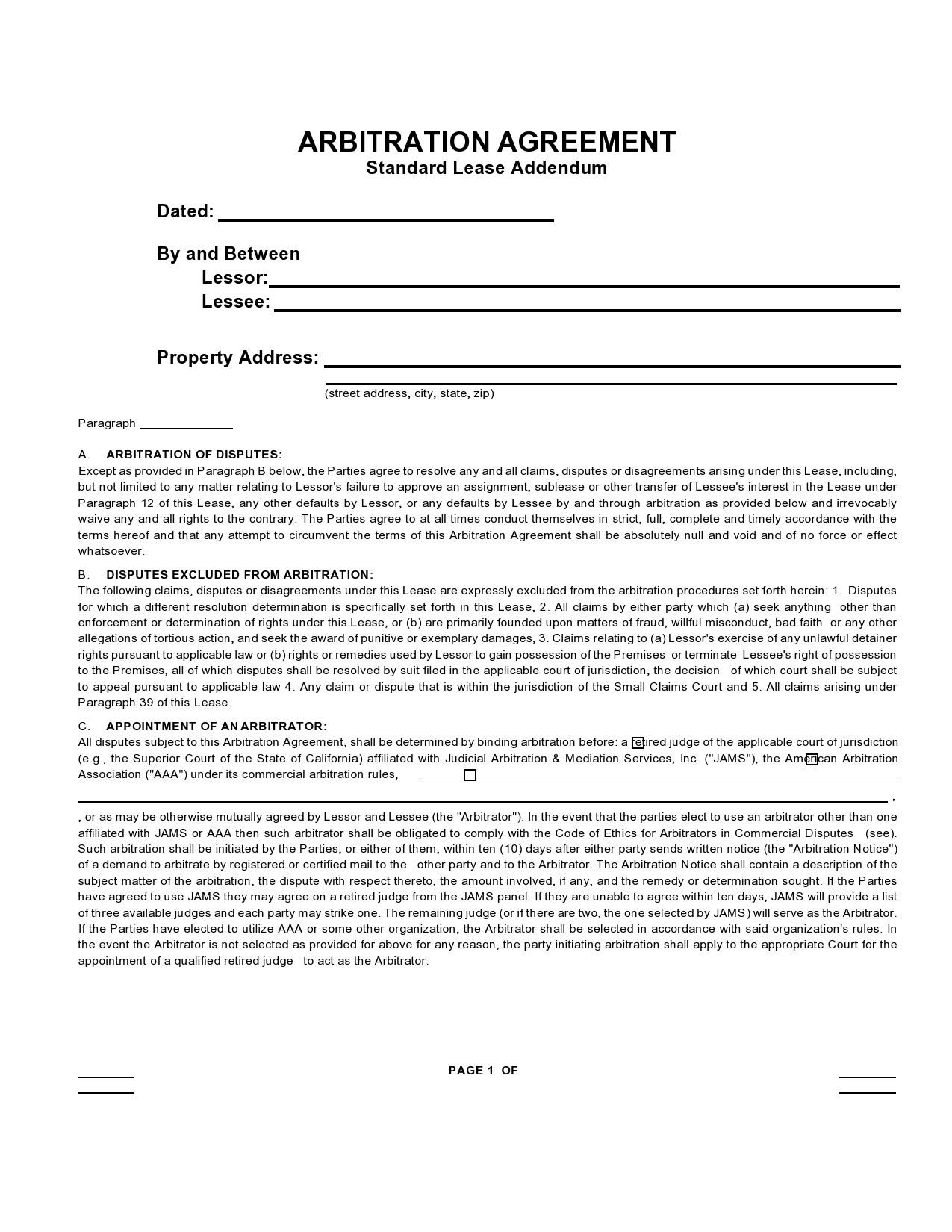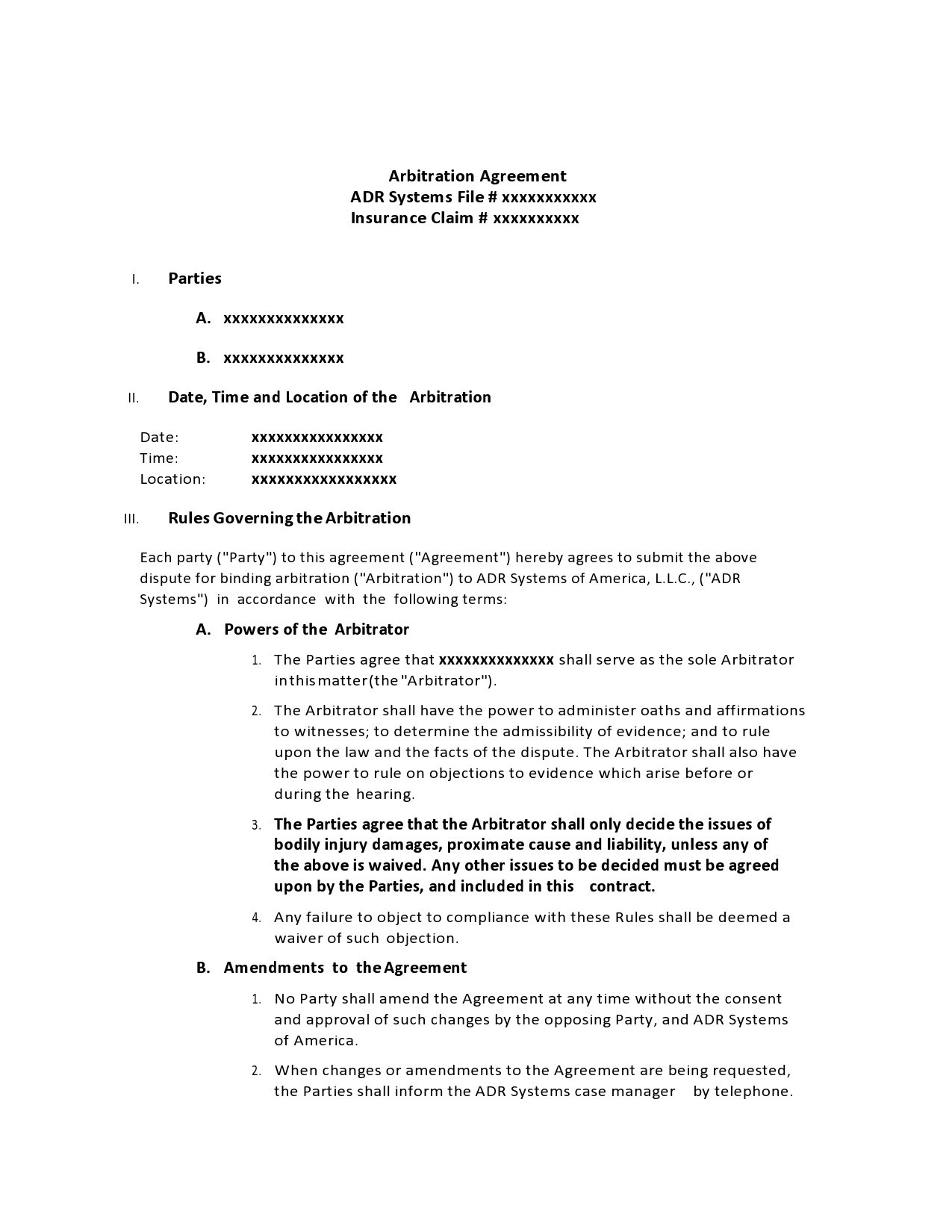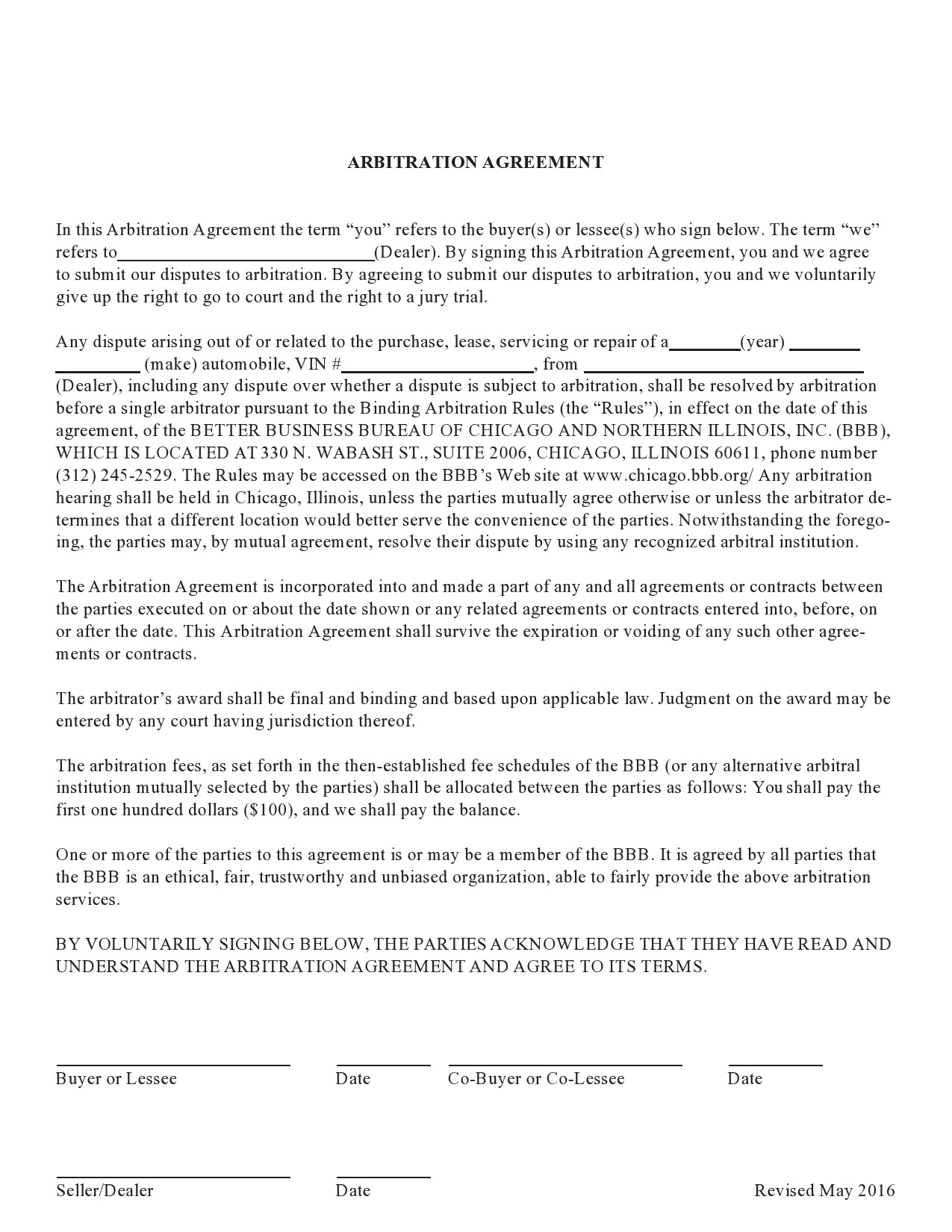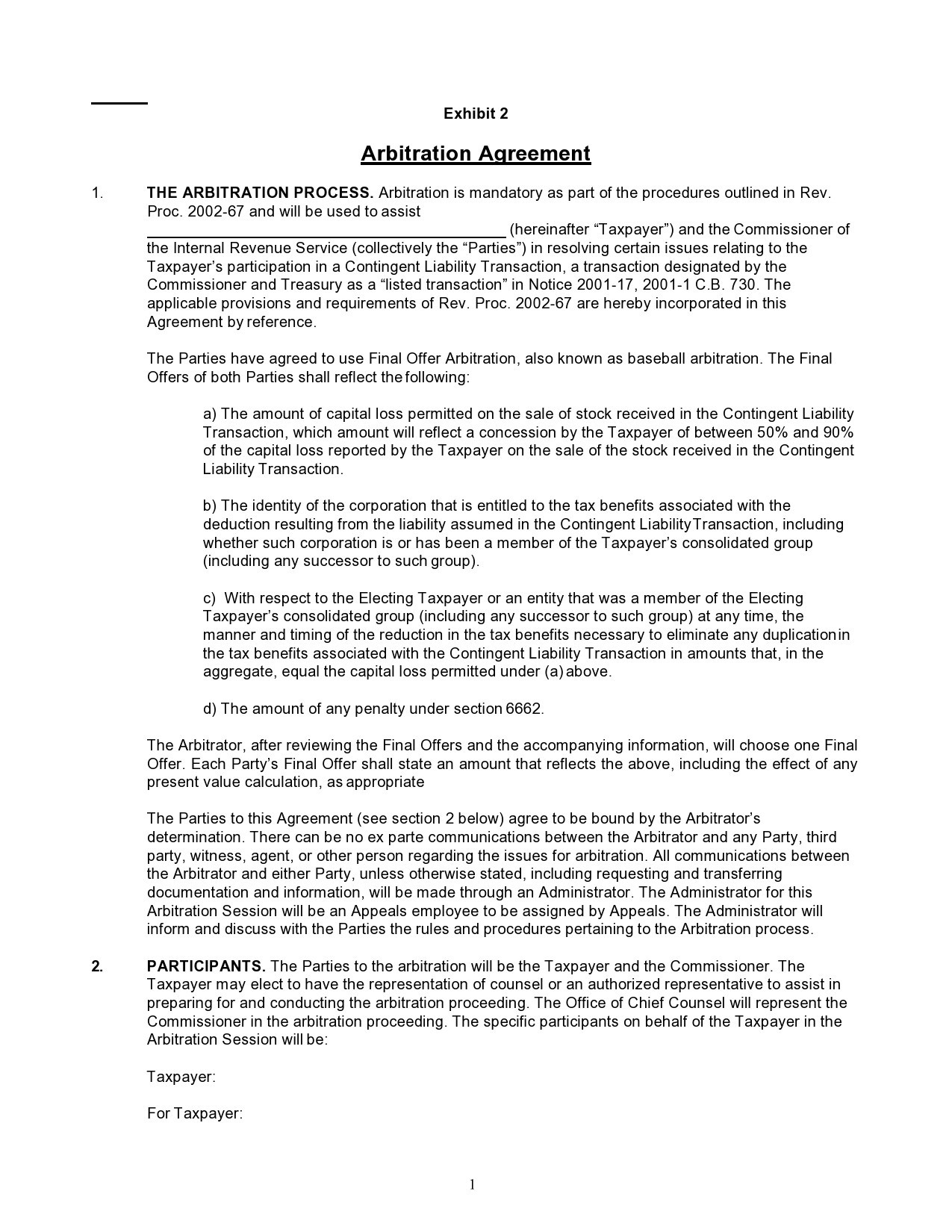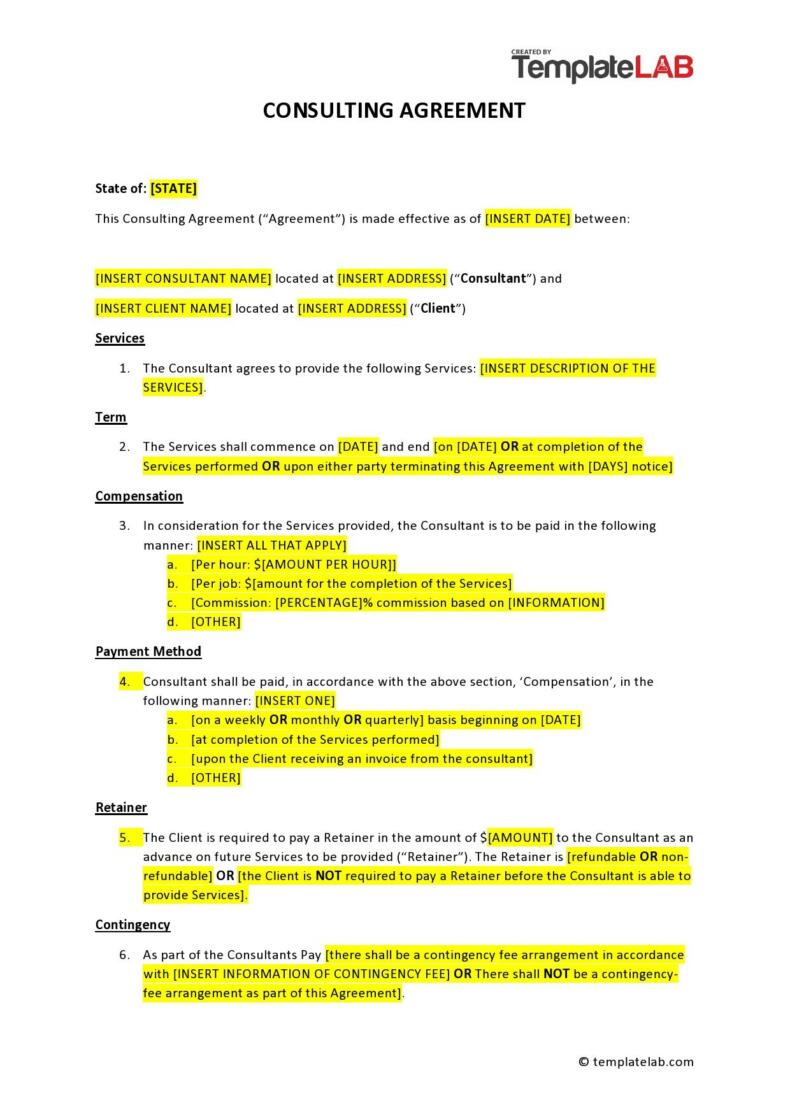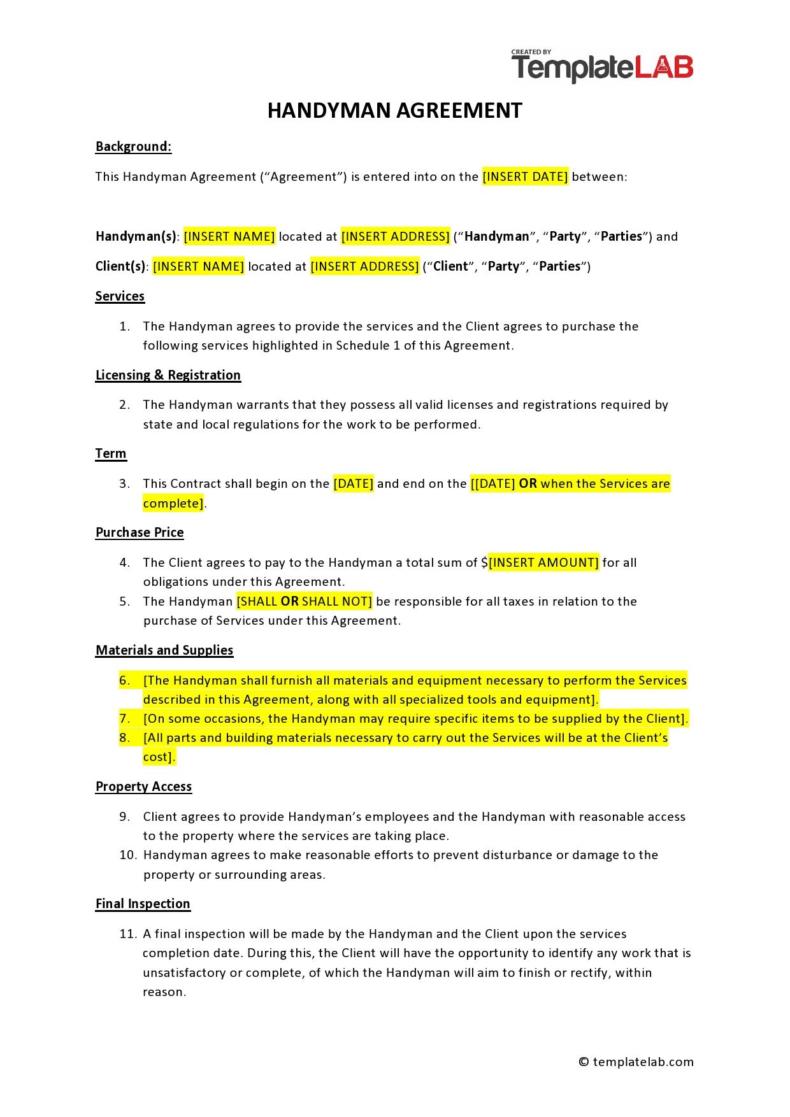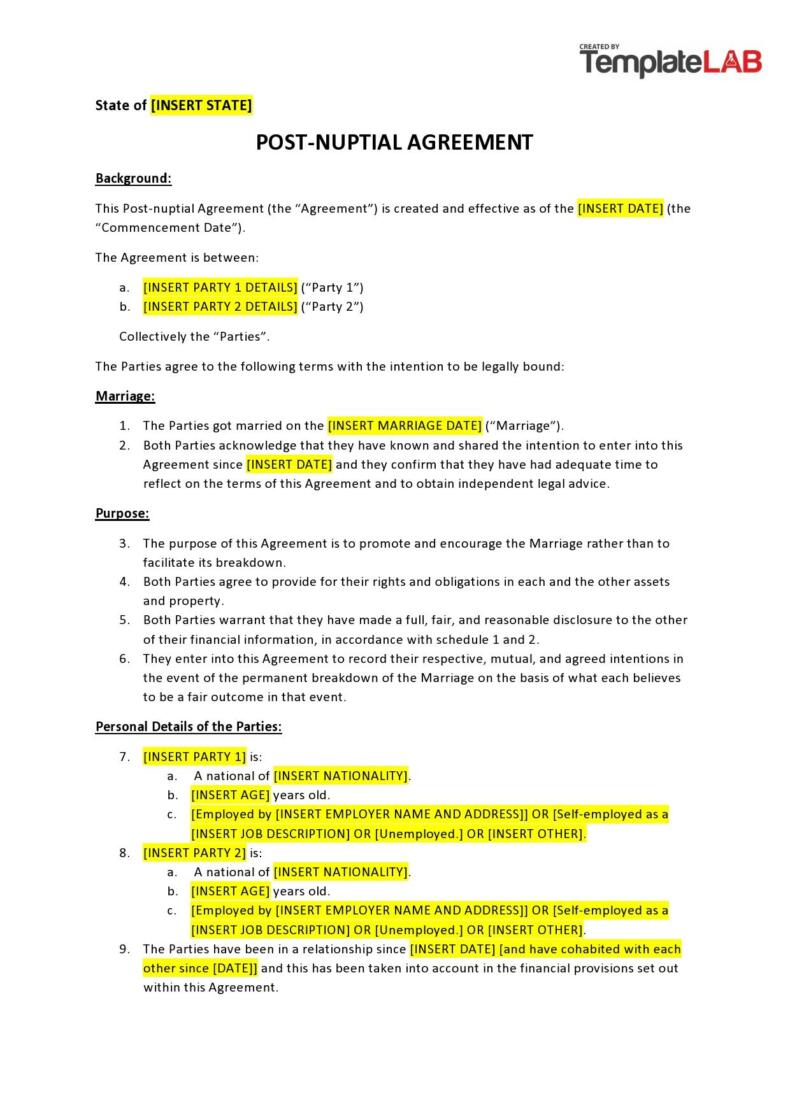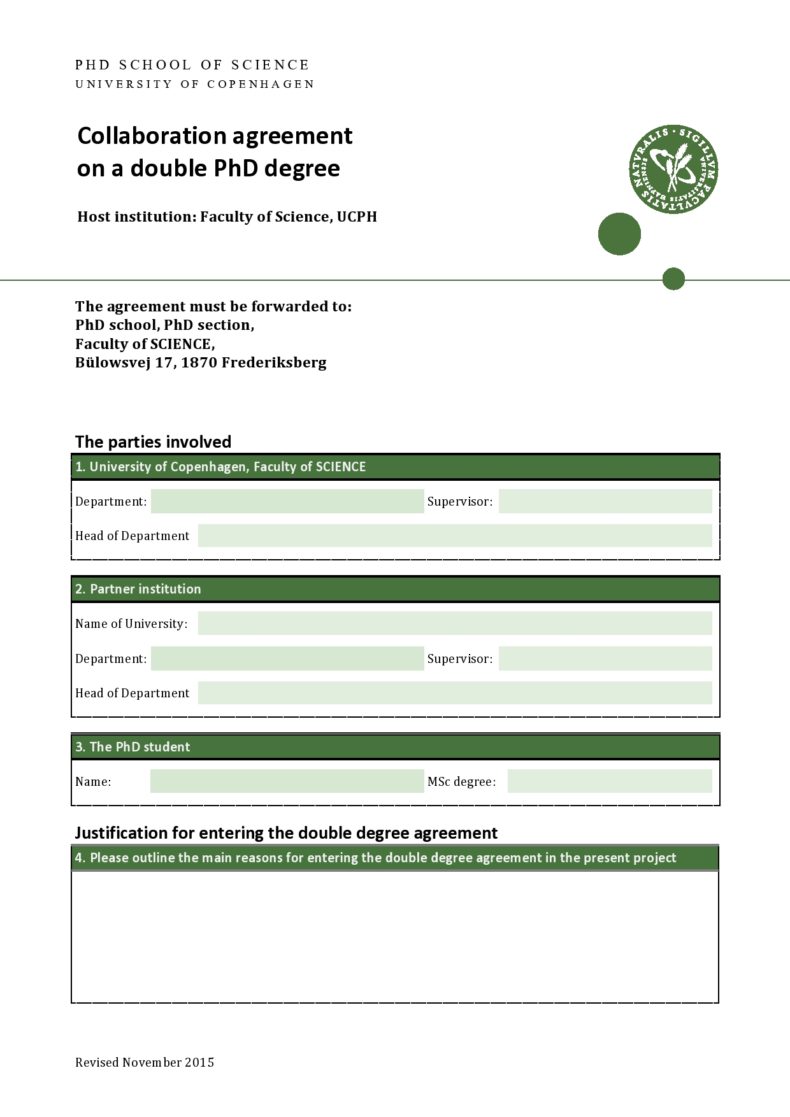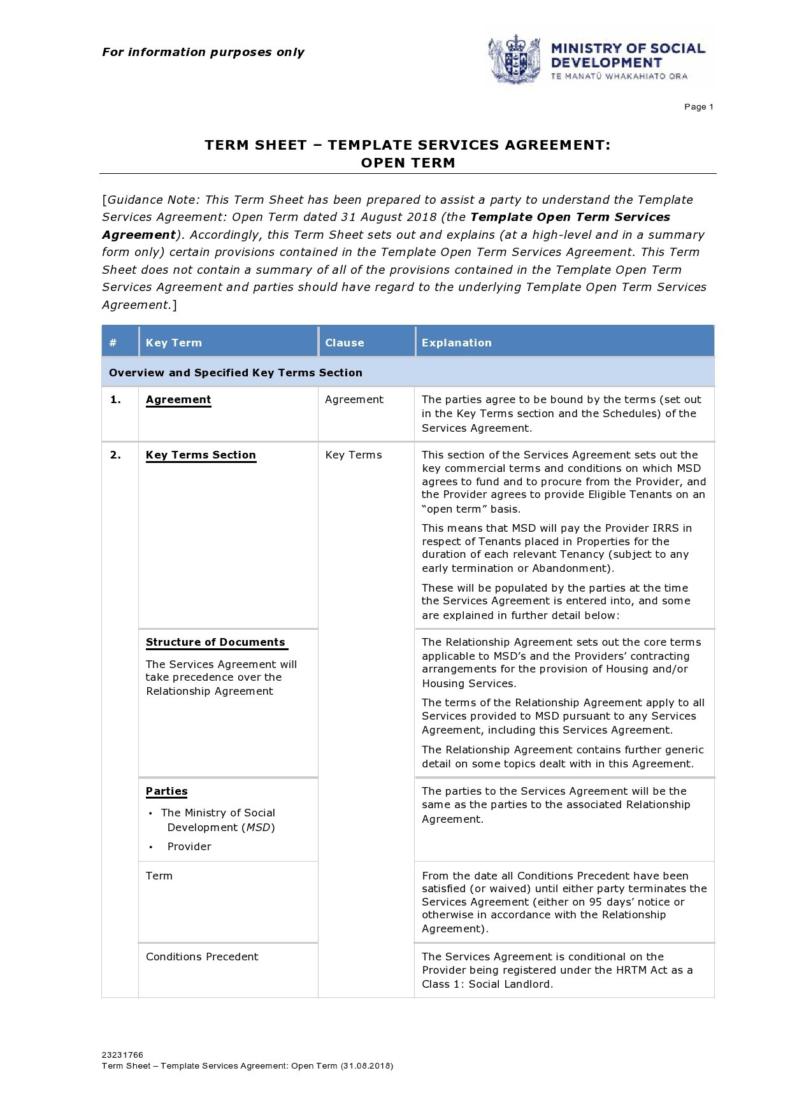Even with the best businesses and organizations, it is inevitable that at some point in time, they would have to deal with legal issues. These issues can cost valuable effort, time, and resources. As a business owner, you would rather choose to keep such disputes out of court as this is the best way to limit your legal fees along with the inconvenience of attending court hearings. An arbitration agreement is a solution to such a problem. Chances are, you may even have already signed this document even without realizing it.
Table of Contents
- 1 Arbitration Agreements
- 2 What does arbitration mean?
- 3 Arbitration Letters
- 4 What is an arbitration agreement?
- 5 Arbitration Agreement Samples
- 6 What is the purpose of an arbitration agreement?
- 7 How binding is an arbitration agreement?
- 8 Arbitration Agreement Templates
- 9 What happens if I don’t sign an arbitration agreement?
Arbitration Agreements
What does arbitration mean?
Arbitration refers to a process of settling a dispute without filing a lawsuit or going to court. In many ways, an arbitration proceeding has similarities with a court case as both involve the services of lawyers, an exchange of information, and hearings. After both sides speak, the arbitrator can make their decision.
However, this process is a lot more informal compared to litigation and its procedures are much simpler. In an arbitration case, the parties don’t have that much right to get information or documents from each other. But one important document used here is an arbitration letter or agreement.
In general, the venue for an arbitration hearing is usually held in a conference room instead of a courtroom. The arbitrator can be a retired judge, a lawyer, or someone who has the experience for this particular industry.
Arbitration Letters
What is an arbitration agreement?
Typically, an arbitration agreement is a clause in a longer contract in which parties agree to settle their dispute without going to court. These types of agreements are very common in employment and consumer contracts.
They can also come in the form of proposed additions to contract negotiations so that you and the other party can avoid the risk of lawsuits. Many businesses require employees and customers to sign an arbitration agreement sample as this move reduces the costs while improving the efficiency of dispute resolutions.
Unfortunately, because arbitration clauses typically appear as “fine print” in longer contracts, many of those who sign these agreements don’t even realize they’re doing so.
When compared to a lawsuit, arbitration is less expensive, confidential, and short. Courts are usually inclined to refuse to overturn arbitration decisions and might even interfere to ensure that the decisions get enforced.
This means that the decisions made by arbitration are final outcomes that allow the contending parties to move forward, without having to face the public scrutiny that usually comes with court trials.
Furthermore, arbitration allows for more flexible and creative rulings than those issued by civil courts. For instance, if you sue a former employer because of wrongful termination, the court will only award you monetary damages. An arbitration, on the other hand, instead of or in addition to awarding monetary damages can also get you reinstated.
Arbitration Agreement Samples
What is the purpose of an arbitration agreement?
Lawyers often recommend arbitration to their clients as the best and quickest way to resolve their claim. In arbitration, you submit your dispute to the arbitrator then they will come to a resolution after both parties have made their presentations.
In most cases, aside from the documents you submit, your lawyer and the other party will make oral arguments on your behalf. There could also be instances where presentations may include witnesses. There are many reasons for you to opt for arbitration with an arbitration agreement:
- You and the other party will agree on the arbitrator. As such, the arbitrator will have to be a person that both parties have confidence in. In such a case, you would feel more confident signing the arbitration agreement template.
- Arbitration disputes, in general, get resolved much sooner because you can get a date for the arbitration a lot quicker than a court date.
- Arbitrations are a lot less expensive and this is partly because the fee you pay to the arbitrator is much smaller than the cost of paying witnesses to come to testify at a trial. Moreover, in most cases, you and the other party will split the arbitrator’s fee equally. Aside from this, the preparation of arbitration costs a lot less than the preparation for a court trial. This is because the rules of evidence in arbitration aren’t as rigid.
- Arbitration is a private process while a trial is not. This means that should you or the other party desire privacy, you can keep the dispute and its resolution confidential.
- When an arbitration gets classified as binding, then there will be very few opportunities for either of you to appeal. This simply means that the arbitration will be the end of the dispute. This gives finality, which is not usually present in a trial decision.
How binding is an arbitration agreement?
A trial and arbitration do share some similarities, like presenting evidence and making opening statements. But arbitrations can get completed a lot quicker and aren’t as formal. For instance, you don’t have to follow federal or state rules of evidence and sometimes, the arbitrator isn’t required to follow the governing law.
The arbitration process, whether it involves an arbitration agreement could either be non-binding or binding. In the case of the latter, the decision rendered is a final one. A court can enforce it and you can only appeal on very limited grounds.
For a non-binding arbitration, the arbitrator’s award is only advisory and only becomes final if you and the other party accept it.
Arbitration Agreement Templates
What happens if I don’t sign an arbitration agreement?
In general, employers ask their employees to sign an arbitration agreement. Refusing to sign this could put your employer’s job at risk. In most cases, an employer might revoke their offer of employment if you as a prospective applicant refuses to sign the arbitration agreement form.
Moreover, an employer can also terminate you if you refuse to sign one as an employee. This means that a refusal to sign the agreement might put your employment at risk. However, there are some employers who will negotiate this point, especially if they feel more excited about taking you under their employment than they are about arbitration.
This is especially true when you are a highly-sought after applicant or if you are a valued employee in the company. The employer may permit you to refuse to sign any arbitration agreement examples rather than lose you.
Another option is for you to agree to sign only if you get a chance to negotiate an agreement that’s fair to you. If your employer will not allow you to refuse to sign, you can try to negotiate some of the terms of the agreement that will make it more advantageous to you.
It is always possible that your employer won’t agree to your requests, but it is also unlikely that you will get fired for asking. Your attempt to negotiate the agreement to arbitrate isn’t any different from discussing your benefits or salary. Remember that your employer wants to negotiate for their best interest and so should you.
If necessary, you might have to consult with a lawyer to negotiate the fairest agreement possible. Here are some things to think about when making negotiations:
- Who to choose as an arbitrator
Both you and your employer should have as much say in choosing an arbitrator. Since you’re cognizant about the arbitrator’s power and the fact that you may not get a chance to appeal any decision the arbitrator makes.
You want to have rights equal to those of your employer when it comes to choosing the arbitrator. Both you and your employer will have the same right to reject at least one arbitrator even without having a valid reason to do so. - Information disclosure
It is very important that the potential arbitrator must disclose information about their personal and business interests. This will make sure that the arbitrator won’t get biased in favor of your employer. For instance, an arbitrator shouldn’t be a stakeholder in your company. You and your employer have the right to reject an arbitrator who has any conflict of interest. - The cost of the arbitration
Since it is your employer who wants to use the arbitration process, something which involves money, then they should have to be the one to pay for the process. - Available remedies
Make sure that throughout the process, you should receive all of the remedies that you should have obtained if your claim got filed in a court of law. For instance, the agreement must not prevent you from seeking damages for emotional distress, punitive damages, and so on. - The right to a lawyer
You should not lose the right to get represented by a lawyer throughout the arbitration process.
Employees at times can find themselves in a tight spot when dealing with these agreements. Technically, you do have the choice not to sign an arbitration agreement, especially when it is too skewed to your employer in terms of benefits. Your employer, however, can simply revoke their employment offer should you refuse to sign.
When your employer asks you to sign this agreement and you don’t feel certain about it, you can always ask your employer if they’re willing to negotiate the terms. For instance, if the agreement states that your employer gets to select the arbitrator, you can ask them that you should have an equal say in this important choice.

